Frequent persons on Chile's street signs
countries
260 names / 3083 streets
Bernardo O'Higgins
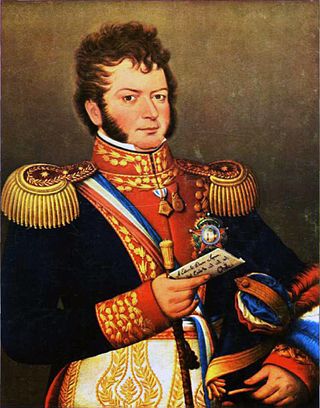 165
Bernardo O'Higgins Riquelme was a Chilean independence leader who freed Chile from Spanish rule in the Chilean War of Independence. He was a wealthy landowner of Basque-Spanish and Irish ancestry....
165
Bernardo O'Higgins Riquelme was a Chilean independence leader who freed Chile from Spanish rule in the Chilean War of Independence. He was a wealthy landowner of Basque-Spanish and Irish ancestry....
Arturo Prat
 129
Agustín Arturo Prat Chacón was a Chilean lawyer and navy officer. He was killed in the Battle of Iquique, during the War of the Pacific.
129
Agustín Arturo Prat Chacón was a Chilean lawyer and navy officer. He was killed in the Battle of Iquique, during the War of the Pacific.
Manuel Rodríguez Erdoíza
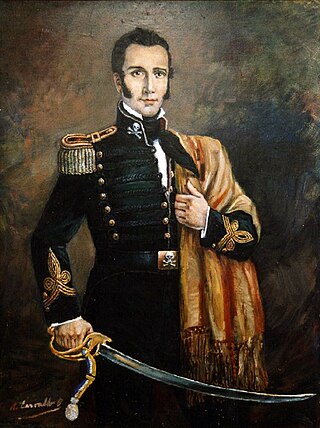 71
Manuel Xavier Rodríguez Erdoíza was a Chilean lawyer and guerrilla leader, considered one of the founders of independent Chile. Rodríguez was of Basque descent.
71
Manuel Xavier Rodríguez Erdoíza was a Chilean lawyer and guerrilla leader, considered one of the founders of independent Chile. Rodríguez was of Basque descent.
José Manuel Balmaceda
 70
José Manuel Emiliano Balmaceda Fernández served as the 10th President of Chile from September 18, 1886, to August 29, 1891. Balmaceda was part of the Castilian-Basque aristocracy in Chile. While he...
70
José Manuel Emiliano Balmaceda Fernández served as the 10th President of Chile from September 18, 1886, to August 29, 1891. Balmaceda was part of the Castilian-Basque aristocracy in Chile. While he...
José de San Martín
 64
José Francisco de San Martín y Matorras, nicknamed "the Liberator of Argentina, Chile and Peru", was an Argentine general and the primary leader of the southern and central parts of South America's...
64
José Francisco de San Martín y Matorras, nicknamed "the Liberator of Argentina, Chile and Peru", was an Argentine general and the primary leader of the southern and central parts of South America's...
Caupolicán
 55
Caupolicán was a toqui or war leader of the Mapuche people, who led the resistance of his people against the Spanish Conquistadors who invaded the territory of today's Chile during the sixteenth...
55
Caupolicán was a toqui or war leader of the Mapuche people, who led the resistance of his people against the Spanish Conquistadors who invaded the territory of today's Chile during the sixteenth...
Ramón Freire
 53
Ramón Saturnino Andrés Freire y Serrano was a Chilean political figure. He was head of state on several occasions, and enjoyed a numerous following until the War of the Confederation. Ramón Freire...
53
Ramón Saturnino Andrés Freire y Serrano was a Chilean political figure. He was head of state on several occasions, and enjoyed a numerous following until the War of the Confederation. Ramón Freire...
Lautaro
 53
Lautaro was a young Mapuche toqui known for leading the indigenous resistance against Spanish conquest in Chile and developing the tactics that would continue to be employed by the Mapuche during the...
53
Lautaro was a young Mapuche toqui known for leading the indigenous resistance against Spanish conquest in Chile and developing the tactics that would continue to be employed by the Mapuche during the...
Gabriela Mistral
 52
Lucila Godoy Alcayaga, known by her pseudonym Gabriela Mistral, was a Chilean poet-diplomat, educator, and Catholic. She was a member of the Secular Franciscan Order or Third Franciscan order. She...
52
Lucila Godoy Alcayaga, known by her pseudonym Gabriela Mistral, was a Chilean poet-diplomat, educator, and Catholic. She was a member of the Secular Franciscan Order or Third Franciscan order. She...
Pedro Aguirre Cerda
 51
Pedro Abelino Aguirre Cerda was a Chilean political figure, educator, and lawyer who served as the 22nd president of Chile from 1938 until his death in 1941. A member of the Radical Party since 1906,...
51
Pedro Abelino Aguirre Cerda was a Chilean political figure, educator, and lawyer who served as the 22nd president of Chile from 1938 until his death in 1941. A member of the Radical Party since 1906,...
José Miguel Carrera
 45
José Miguel Carrera Verdugo was a Chilean general, formerly Spanish military, member of the prominent Carrera family, and considered one of the founders of independent Chile. Carrera was the most...
45
José Miguel Carrera Verdugo was a Chilean general, formerly Spanish military, member of the prominent Carrera family, and considered one of the founders of independent Chile. Carrera was the most...
Pedro de Valdivia
 45
Pedro Gutiérrez de Valdivia or Valdiva was a Spanish conquistador and the first royal governor of Chile. After serving with the Spanish army in Italy and Flanders, he was sent to South America in...
45
Pedro Gutiérrez de Valdivia or Valdiva was a Spanish conquistador and the first royal governor of Chile. After serving with the Spanish army in Italy and Flanders, he was sent to South America in...
Ignacio Carrera Pinto
 45
Ignacio Carrera Pinto was a Chilean hero of the War of the Pacific. Carrera and his 77 men of the Fourth Company of Chacabuco are regarded in Chile as great heroes, and are commonly referred to as...
45
Ignacio Carrera Pinto was a Chilean hero of the War of the Pacific. Carrera and his 77 men of the Fourth Company of Chacabuco are regarded in Chile as great heroes, and are commonly referred to as...
Manuel Baquedano
 42
Manuel Jesús Baquedano González was a Chilean soldier and politician, who served as Commander-in-chief of the Army during the War of the Pacific, and briefly as President of Chile during the civil...
42
Manuel Jesús Baquedano González was a Chilean soldier and politician, who served as Commander-in-chief of the Army during the War of the Pacific, and briefly as President of Chile during the civil...
Diego Portales
 42
Diego José Pedro Víctor Portales y Palazuelos was a Chilean statesman and entrepreneur. As a minister of president José Joaquín Prieto's government, he played a pivotal role in shaping the state and...
42
Diego José Pedro Víctor Portales y Palazuelos was a Chilean statesman and entrepreneur. As a minister of president José Joaquín Prieto's government, he played a pivotal role in shaping the state and...
Manuel Bulnes
 41
Manuel Bulnes Prieto was a Chilean military and political figure. He was twice President of Chile, from 1841 to 1846 and from 1846 to 1851.
41
Manuel Bulnes Prieto was a Chilean military and political figure. He was twice President of Chile, from 1841 to 1846 and from 1846 to 1851.
Aníbal Pinto
 38
Aníbal Pinto Garmendia was a Chilean political figure. He served as the president of Chile between 1876 and 1881.
38
Aníbal Pinto Garmendia was a Chilean political figure. He served as the president of Chile between 1876 and 1881.
Benjamín Vicuña Mackenna
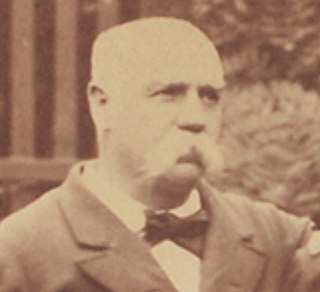 38
Benjamín Vicuña Mackenna was a Chilean writer, journalist, historian and politician. Vicuña Mackenna was of Irish and Basque descent.
38
Benjamín Vicuña Mackenna was a Chilean writer, journalist, historian and politician. Vicuña Mackenna was of Irish and Basque descent.
Christopher Columbus
 35
Christopher Columbus was an Italian explorer and navigator from the Republic of Genoa who completed four Spanish-based voyages across the Atlantic Ocean sponsored by the Catholic Monarchs, opening...
35
Christopher Columbus was an Italian explorer and navigator from the Republic of Genoa who completed four Spanish-based voyages across the Atlantic Ocean sponsored by the Catholic Monarchs, opening...
Manuel Montt
 35
Manuel Francisco Antonio Julián Montt Torres was a Chilean statesman and scholar. He was twice elected President of Chile between 1851 and 1861.
35
Manuel Francisco Antonio Julián Montt Torres was a Chilean statesman and scholar. He was twice elected President of Chile between 1851 and 1861.
Juan de Dios Aldea
 35
Juan de Dios Aldea (1853–1879) was a Chilean marine. His remains rest in the crypt of the Monument to the Heroes of the Battle of Iquique, in Valparaíso.
35
Juan de Dios Aldea (1853–1879) was a Chilean marine. His remains rest in the crypt of the Monument to the Heroes of the Battle of Iquique, in Valparaíso.
Pedro Montt
 32
Pedro Elías Pablo Montt Montt was a Chilean political figure. He served as the president of Chile from 1906 to his death from a probable stroke in 1910. His government furthered railroad and...
32
Pedro Elías Pablo Montt Montt was a Chilean political figure. He served as the president of Chile from 1906 to his death from a probable stroke in 1910. His government furthered railroad and...
Manuel Blanco Encalada
 30
Manuel José Blanco y Calvo de Encalada was a vice-admiral in the Chilean Navy, a political figure, and Chile's first President (Provisional) (1826).
30
Manuel José Blanco y Calvo de Encalada was a vice-admiral in the Chilean Navy, a political figure, and Chile's first President (Provisional) (1826).
Juan José Latorre
 28
Juan José Latorre Benavente Chilean Vice Admiral, one of the principal actors of the War of the Pacific, and hero of the Battle of Angamos.
28
Juan José Latorre Benavente Chilean Vice Admiral, one of the principal actors of the War of the Pacific, and hero of the Battle of Angamos.
Francis of Assisi
 28
Giovanni di Pietro di Bernardone, known as Francis of Assisi, was an Italian mystic, poet and Catholic friar who founded the religious order of the Franciscans. He was inspired to lead a Christian...
28
Giovanni di Pietro di Bernardone, known as Francis of Assisi, was an Italian mystic, poet and Catholic friar who founded the religious order of the Franciscans. He was inspired to lead a Christian...
Eleuterio Ramírez
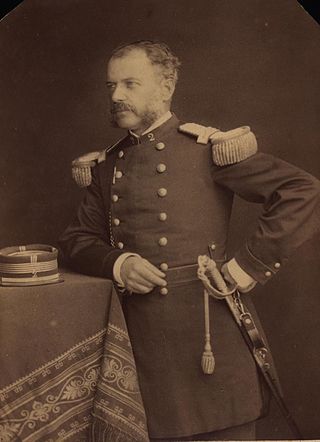 27
Eleuterio Ramírez Molina was a Chilean lieutenant colonel. He founded the Foro Militar military newspaper in 1871.
27
Eleuterio Ramírez Molina was a Chilean lieutenant colonel. He founded the Foro Militar military newspaper in 1871.
Alberto Hurtado
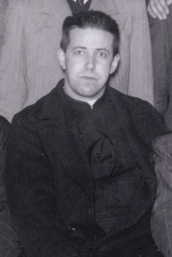 27
Alberto Hurtado, popularly known in Chile as Padre Hurtado, was a Chilean Jesuit priest, lawyer, social worker, and writer, of Basque ancestry. He founded the Hogar de Cristo foundation in 1944. He...
27
Alberto Hurtado, popularly known in Chile as Padre Hurtado, was a Chilean Jesuit priest, lawyer, social worker, and writer, of Basque ancestry. He founded the Hogar de Cristo foundation in 1944. He...
Federico Errázuriz Zañartu
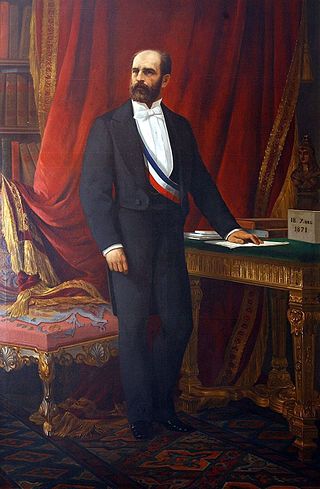 26
Federico Marcos del Rosario Errázuriz Zañartu was a Chilean political figure. He served as the president of Chile between 1871 and 1876.
26
Federico Marcos del Rosario Errázuriz Zañartu was a Chilean political figure. He served as the president of Chile between 1871 and 1876.
Galvarino
 26
Galvarino was a famous Mapuche warrior during the majority of the early part of the Arauco War. He fought and was taken prisoner along with one hundred and fifty other Mapuche, in the Battle of...
26
Galvarino was a famous Mapuche warrior during the majority of the early part of the Arauco War. He fought and was taken prisoner along with one hundred and fifty other Mapuche, in the Battle of...
Camilo Henríquez
 25
Friar José Camilo Henríquez González was a priest, author, politician, and is considered an intellectual antecedent to and founding father of the Republic of Chile for his passionate leadership and...
25
Friar José Camilo Henríquez González was a priest, author, politician, and is considered an intellectual antecedent to and founding father of the Republic of Chile for his passionate leadership and...
Mary, mother of Jesus
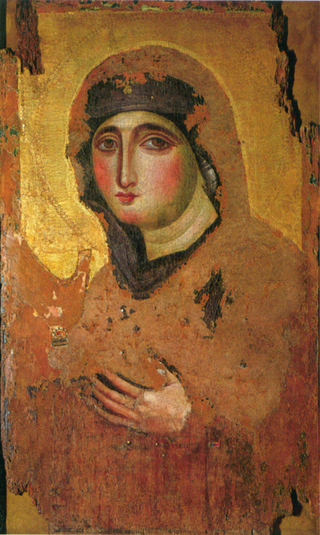 25
Mary was a first-century Jewish woman of Nazareth, the wife of Joseph and the mother of Jesus. She is a central figure of Christianity, venerated under various titles such as virgin or queen, many of...
25
Mary was a first-century Jewish woman of Nazareth, the wife of Joseph and the mother of Jesus. She is a central figure of Christianity, venerated under various titles such as virgin or queen, many of...
Diego Barros Arana
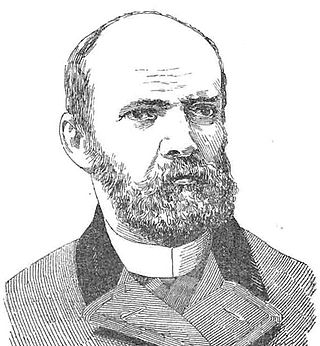 25
Diego Jacinto Agustín Barros Arana was a Chilean professor, legislator, minister and diplomat. He is considered the most important Chilean historian of the 19th century. His main work General History...
25
Diego Jacinto Agustín Barros Arana was a Chilean professor, legislator, minister and diplomat. He is considered the most important Chilean historian of the 19th century. His main work General History...
Pablo Neruda
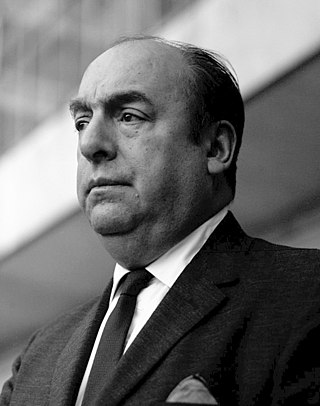 25
Pablo Neruda was a Chilean poet-diplomat and politician who won the 1971 Nobel Prize in Literature. Neruda became known as a poet when he was 13 years old and wrote in a variety of styles, including...
25
Pablo Neruda was a Chilean poet-diplomat and politician who won the 1971 Nobel Prize in Literature. Neruda became known as a poet when he was 13 years old and wrote in a variety of styles, including...
José María Caro Rodríguez
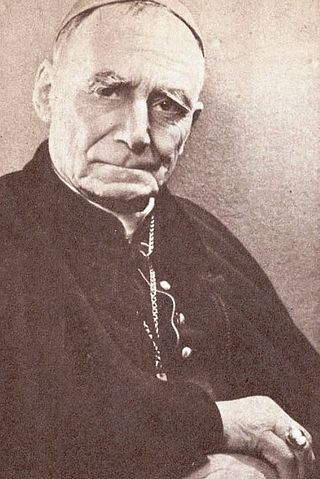 23
José María Caro Rodríguez was a Chilean Cardinal of the Roman Catholic Church. He served as Archbishop of Santiago from 1939 until his death, and was elevated to the cardinalate in 1946 by Pope Pius...
23
José María Caro Rodríguez was a Chilean Cardinal of the Roman Catholic Church. He served as Archbishop of Santiago from 1939 until his death, and was elevated to the cardinalate in 1946 by Pope Pius...
Francisco Bilbao
 22
Francisco Bilbao Barquín was a Chilean writer, philosopher and liberal politician.
22
Francisco Bilbao Barquín was a Chilean writer, philosopher and liberal politician.
Manuel Antonio Matta
 22
Manuel Antonio Matta was a Chilean politician, lawyer and writer and founder of the Radical Party of Chile along with Pedro Leon Gallo.
22
Manuel Antonio Matta was a Chilean politician, lawyer and writer and founder of the Radical Party of Chile along with Pedro Leon Gallo.
Patricio Lynch
 22
Patricio Javier de los Dolores Lynch y Solo de Zaldívar was a lieutenant in the Royal Navy and a rear admiral in the Chilean Navy, and one of the principal figures of the later stages of the War of...
22
Patricio Javier de los Dolores Lynch y Solo de Zaldívar was a lieutenant in the Royal Navy and a rear admiral in the Chilean Navy, and one of the principal figures of the later stages of the War of...
Saint Joseph
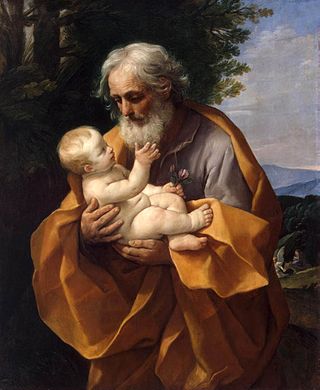 21
Joseph was a 1st-century Jewish man of Nazareth who, according to the canonical Gospels, was married to Mary, the mother of Jesus, and was the legal father of Jesus.
21
Joseph was a 1st-century Jewish man of Nazareth who, according to the canonical Gospels, was married to Mary, the mother of Jesus, and was the legal father of Jesus.
Andrés Bello
 19
Andrés de Jesús María y José Bello López was a Venezuelan humanist, diplomat, poet, legislator, philosopher, educator and philologist, whose political and literary works constitute an important part...
19
Andrés de Jesús María y José Bello López was a Venezuelan humanist, diplomat, poet, legislator, philosopher, educator and philologist, whose political and literary works constitute an important part...
Carlos Condell
 19
Carlos Arnaldo Condell De La Haza was a Chilean naval officer and hero of the Battle of Punta Gruesa during the start of the War of the Pacific.
19
Carlos Arnaldo Condell De La Haza was a Chilean naval officer and hero of the Battle of Punta Gruesa during the start of the War of the Pacific.
Amerigo Vespucci
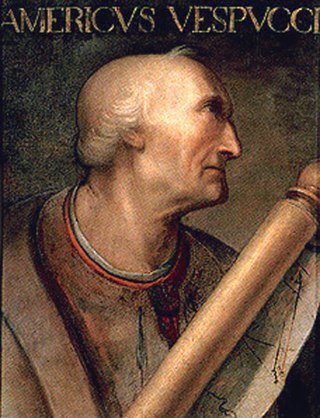 18
Amerigo Vespucci was an Italian explorer and navigator from the Republic of Florence, from whose name the term "America" is derived.
18
Amerigo Vespucci was an Italian explorer and navigator from the Republic of Florence, from whose name the term "America" is derived.
Joaquín Prieto
 18
Joaquín Prieto Vial was a Chilean military and political figure. He was twice President of Chile between 1831 and 1841. Joaquín Prieto was of Spanish and Basque descent.
18
Joaquín Prieto Vial was a Chilean military and political figure. He was twice President of Chile between 1831 and 1841. Joaquín Prieto was of Spanish and Basque descent.
Saint Peter
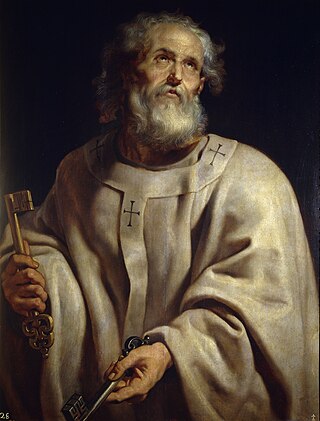 18
Saint Peter, also known as Peter the Apostle, Simon Peter, Simeon, Simon, or Cephas, was one of the Twelve Apostles of Jesus Christ and one of the first leaders of the early Christian Church. He...
18
Saint Peter, also known as Peter the Apostle, Simon Peter, Simeon, Simon, or Cephas, was one of the Twelve Apostles of Jesus Christ and one of the first leaders of the early Christian Church. He...
Ferdinand Magellan
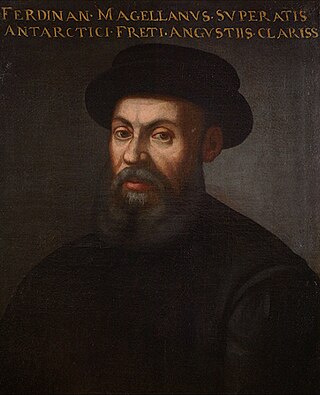 18
Ferdinand Magellan was a Portuguese explorer best known for having planned and led the 1519 Spanish expedition to the East Indies across the Pacific Ocean to open a maritime trade route, during which...
18
Ferdinand Magellan was a Portuguese explorer best known for having planned and led the 1519 Spanish expedition to the East Indies across the Pacific Ocean to open a maritime trade route, during which...
Rafael Sotomayor
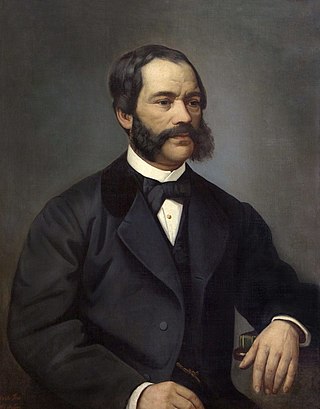 18
Rafael Sotomayor Baeza was a Chilean lawyer and politician. As Minister of War and Navy he was the main organiser of Chilean forces during the War of the Pacific. He died of a stroke while on...
18
Rafael Sotomayor Baeza was a Chilean lawyer and politician. As Minister of War and Navy he was the main organiser of Chilean forces during the War of the Pacific. He died of a stroke while on...
Vicente Pérez Rosales
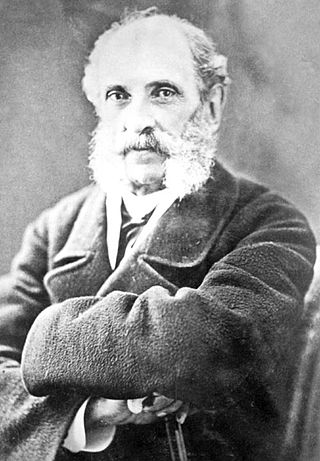 17
Vicente Pérez Rosales was a politician, traveller, merchant, miner and Chilean diplomat that organised the colonisation by Germans and Chileans of the Llanquihue area. Vicente Pérez Rosales National...
17
Vicente Pérez Rosales was a politician, traveller, merchant, miner and Chilean diplomat that organised the colonisation by Germans and Chileans of the Llanquihue area. Vicente Pérez Rosales National...
Thomas Cochrane, 10th Earl of Dundonald
 17
Thomas Cochrane, 10th Earl of Dundonald GCB, styled Lord Cochrane between 1778 and 1831, was a Scottish naval officer, peer, mercenary and politician. Serving during the French Revolutionary and...
17
Thomas Cochrane, 10th Earl of Dundonald GCB, styled Lord Cochrane between 1778 and 1831, was a Scottish naval officer, peer, mercenary and politician. Serving during the French Revolutionary and...
Antonio Varas
 16
Antonio Varas de la Barra was a Chilean political figure. He began his political career as a Conservative, but was later a member of the National Party, of which he was one of the founders in 1857....
16
Antonio Varas de la Barra was a Chilean political figure. He began his political career as a Conservative, but was later a member of the National Party, of which he was one of the founders in 1857....
Galvarino Riveros Cárdenas
 16
José Galvarino Riveros Cárdenas was a Chilean naval officer, Commander of the Chilean Squadron during the War of the Pacific.
16
José Galvarino Riveros Cárdenas was a Chilean naval officer, Commander of the Chilean Squadron during the War of the Pacific.
Luis Cruz Martínez
 16
Luis Cruz Martinez was a lieutenant of the 6th. second company of Regiment "Chacabuco" and hero of the Battle of La Concepción, during the War of the Pacific in 1882, in Chilean occupied territory.
16
Luis Cruz Martinez was a lieutenant of the 6th. second company of Regiment "Chacabuco" and hero of the Battle of La Concepción, during the War of the Pacific in 1882, in Chilean occupied territory.
José Joaquín Pérez
 16
José Joaquín Pérez Mascayano was a Chilean political figure. He served as the president of Chile between 1861 and 1871.
16
José Joaquín Pérez Mascayano was a Chilean political figure. He served as the president of Chile between 1861 and 1871.
Ignacio Serrano
 16
Ignacio Serrano, also known as José Ignacio Serrano was a Mexican painter and lithographer of the 19th century. He was the first lithography docent at San Carlos Academy, where he also served as...
16
Ignacio Serrano, also known as José Ignacio Serrano was a Mexican painter and lithographer of the 19th century. He was the first lithography docent at San Carlos Academy, where he also served as...
Diego de Almagro
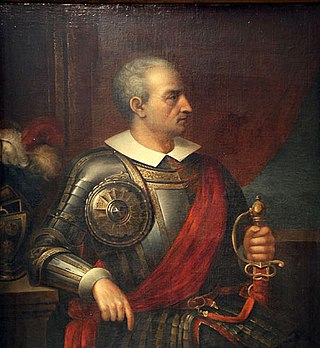 16
Diego de Almagro, also known as El Adelantado and El Viejo, was a Spanish conquistador known for his exploits in western South America. He participated with Francisco Pizarro in the Spanish conquest...
16
Diego de Almagro, also known as El Adelantado and El Viejo, was a Spanish conquistador known for his exploits in western South America. He participated with Francisco Pizarro in the Spanish conquest...
Jorge Alessandri
 16
Jorge Eduardo Alessandri Rodríguez was the 26th President of Chile from 1958 to 1964, and was the candidate of the Chilean right in the crucial presidential election of 1970, which he lost to...
16
Jorge Eduardo Alessandri Rodríguez was the 26th President of Chile from 1958 to 1964, and was the candidate of the Chilean right in the crucial presidential election of 1970, which he lost to...
Eusebio Lillo
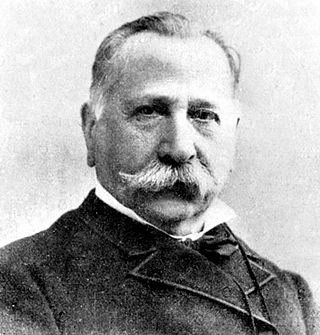 16
Eusebio Lillo Robles was a poet, journalist and politician. He is the author of the lyrics of the Chilean National Anthem.
16
Eusebio Lillo Robles was a poet, journalist and politician. He is the author of the lyrics of the Chilean National Anthem.
Paul the Apostle
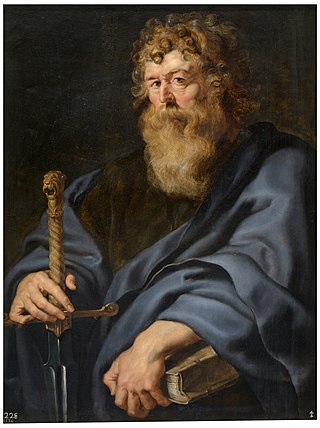 15
Paul, commonly known as Paul the Apostle and Saint Paul, was a Christian apostle who spread the teachings of Jesus in the first-century world. For his contributions towards the New Testament, he is...
15
Paul, commonly known as Paul the Apostle and Saint Paul, was a Christian apostle who spread the teachings of Jesus in the first-century world. For his contributions towards the New Testament, he is...
Saint Sebastian
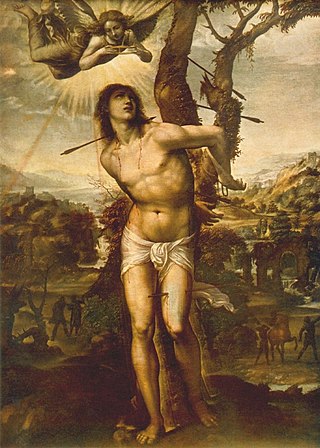 15
Sebastian was an early Christian saint and martyr. According to traditional belief, he was killed during the Diocletianic Persecution of Christians. He was initially tied to a post or tree and shot...
15
Sebastian was an early Christian saint and martyr. According to traditional belief, he was killed during the Diocletianic Persecution of Christians. He was initially tied to a post or tree and shot...
Rose of Lima
 15
Rose of Lima, TOSD was a member of the Third Order of Saint Dominic in Lima, Peru, who became known for both her life of severe penance and her care of the poverty stricken of the city through her...
15
Rose of Lima, TOSD was a member of the Third Order of Saint Dominic in Lima, Peru, who became known for both her life of severe penance and her care of the poverty stricken of the city through her...
John the Baptist
 15
John the Baptist was a Jewish preacher active in the area of the Jordan River in the early 1st century AD. He is also known as Saint John the Forerunner in Eastern Orthodoxy, John the Immerser in...
15
John the Baptist was a Jewish preacher active in the area of the Jordan River in the early 1st century AD. He is also known as Saint John the Forerunner in Eastern Orthodoxy, John the Immerser in...
Pedro Lagos
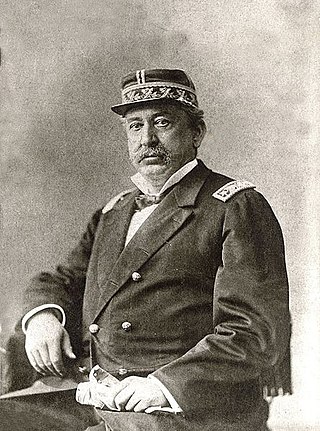 15
Pedro Lagos Marchant was a Chilean infantry commander. He is best remembered for commanding the assault and capture of the city of Arica during the War of the Pacific.
15
Pedro Lagos Marchant was a Chilean infantry commander. He is best remembered for commanding the assault and capture of the city of Arica during the War of the Pacific.
Anthony of Padua
 14
Anthony of Padua, OFM or Anthony of Lisbon was a Portuguese Catholic priest and friar of the Franciscan Order.
14
Anthony of Padua, OFM or Anthony of Lisbon was a Portuguese Catholic priest and friar of the Franciscan Order.
Simón Bolívar
 14
Simón José Antonio de la Santísima Trinidad Bolívar Palacios Ponte y Blanco was a Venezuelan military and political leader who led what are currently the countries of Colombia, Venezuela, Ecuador,...
14
Simón José Antonio de la Santísima Trinidad Bolívar Palacios Ponte y Blanco was a Venezuelan military and political leader who led what are currently the countries of Colombia, Venezuela, Ecuador,...
Paula Jaraquemada
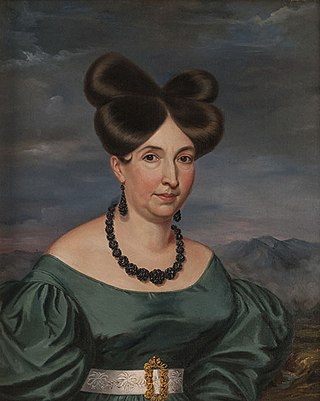 14
Paula Jaraquemada Alquizar (1768–1851) was one of Chile's most outstanding patriots in the struggle for independence from Spain.
14
Paula Jaraquemada Alquizar (1768–1851) was one of Chile's most outstanding patriots in the struggle for independence from Spain.
Saint Dominic
 13
Saint Dominic,, also known as Dominic de Guzmán, was a Castilian Catholic priest and the founder of the Dominican Order. He is the patron saint of astronomers and natural scientists, and he and his...
13
Saint Dominic,, also known as Dominic de Guzmán, was a Castilian Catholic priest and the founder of the Dominican Order. He is the patron saint of astronomers and natural scientists, and he and his...
Pope John Paul II
 13
Pope John Paul II was head of the Catholic Church and sovereign of the Vatican City State from 1978 until his death in 2005.
13
Pope John Paul II was head of the Catholic Church and sovereign of the Vatican City State from 1978 until his death in 2005.
Carlos Ibáñez del Campo
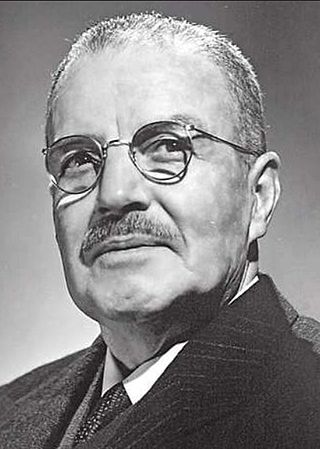 13
General Carlos Ibáñez del Campo was a Chilean Army officer and political figure. He served as President twice, first between 1927 and 1931, and then from 1952 to 1958, serving for 10 years in office.
13
General Carlos Ibáñez del Campo was a Chilean Army officer and political figure. He served as President twice, first between 1927 and 1931, and then from 1952 to 1958, serving for 10 years in office.
Javiera Carrera
 13
Francisca Xaviera Eudoxia Rudecinda Carmen de los Dolores de la Carrera y Verdugo, better known as Javiera Carrera, was a Chilean independence activist. Together with her brothers José Miguel, Juan...
13
Francisca Xaviera Eudoxia Rudecinda Carmen de los Dolores de la Carrera y Verdugo, better known as Javiera Carrera, was a Chilean independence activist. Together with her brothers José Miguel, Juan...
Ramón Barros Luco
 13
Ramón Barros Luco was President of Chile between 1910 and 1915.
13
Ramón Barros Luco was President of Chile between 1910 and 1915.
Salvador Allende
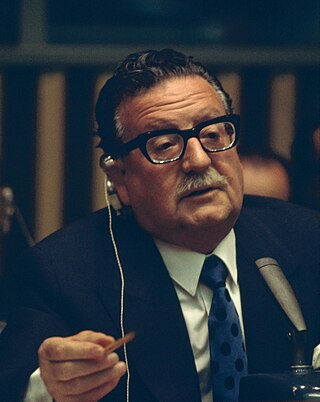 13
Salvador Guillermo Allende Gossens was a Chilean socialist politician who served as the 28th president of Chile from 1970 until his death in 1973. As a democratic socialist committed to democracy, he...
13
Salvador Guillermo Allende Gossens was a Chilean socialist politician who served as the 28th president of Chile from 1970 until his death in 1973. As a democratic socialist committed to democracy, he...
John F. Kennedy
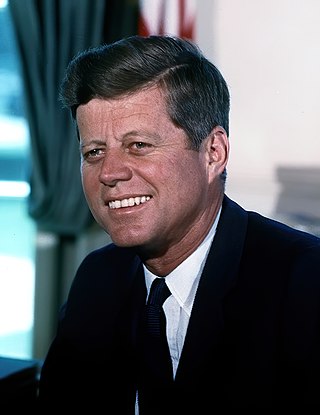 12
John Fitzgerald Kennedy, often referred to as JFK, was an American politician who served as the 35th president of the United States from 1961 until his assassination in 1963. He was the youngest...
12
John Fitzgerald Kennedy, often referred to as JFK, was an American politician who served as the 35th president of the United States from 1961 until his assassination in 1963. He was the youngest...
José Victorino Lastarria
 12
José Victorino Lastarria was a Chilean writer, legislative deputy, senator, diplomat, and finance minister.
12
José Victorino Lastarria was a Chilean writer, legislative deputy, senator, diplomat, and finance minister.
Isabel Riquelme
 12
María Isabel Riquelme de la Barrera y Meza, was the mother of Chilean independence leader Bernardo O'Higgins. Isabel Riquelme was of Basque descent.
12
María Isabel Riquelme de la Barrera y Meza, was the mother of Chilean independence leader Bernardo O'Higgins. Isabel Riquelme was of Basque descent.
Domingo Santa María
 12
Domingo Santa María González was a Chilean political figure. He served as the president of Chile between 1881 and 1886.
12
Domingo Santa María González was a Chilean political figure. He served as the president of Chile between 1881 and 1886.
Louis of Toulouse
 11
Saint Louis of Toulouse, also known as Louis of Anjou, was a Neapolitan prince of the Capetian House of Anjou and a Catholic bishop.
11
Saint Louis of Toulouse, also known as Louis of Anjou, was a Neapolitan prince of the Capetian House of Anjou and a Catholic bishop.
José Manuel Infante
 11
José Manuel Infante Montt fue un abogado, juez y político chileno.
11
José Manuel Infante Montt fue un abogado, juez y político chileno.
Miguel Luis Amunátegui
 11
Miguel Luis Amunátegui Aldunate was a Chilean historian, politician, and writer. He was the brother of fellow historian Gregorio Víctor Amunátegui Aldunate.
11
Miguel Luis Amunátegui Aldunate was a Chilean historian, politician, and writer. He was the brother of fellow historian Gregorio Víctor Amunátegui Aldunate.
Ernesto Riquelme
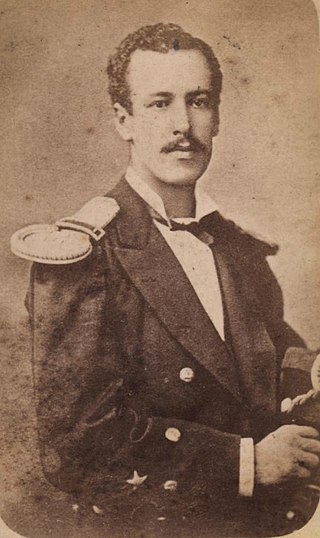 10
Ernesto Riquelme Venegas fue un marino y bombero chileno.
10
Ernesto Riquelme Venegas fue un marino y bombero chileno.
Alonso de Ercilla
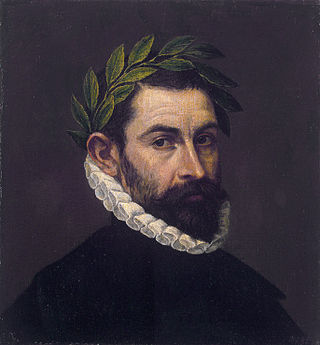 10
Alonso de Ercilla y Zúñiga was a Spanish soldier and poet, born in Madrid. While in Chile (1556–63) he fought against the Araucanians (Mapuche), and there he began the epic poem La Araucana,...
10
Alonso de Ercilla y Zúñiga was a Spanish soldier and poet, born in Madrid. While in Chile (1556–63) he fought against the Araucanians (Mapuche), and there he began the epic poem La Araucana,...
Cornelio Saavedra
 10
Cornelio Judas Tadeo de Saavedra y Rodríguez was an Argentine military officer and statesman. He was instrumental in the May Revolution, the first step of Argentina's independence from Spain, and...
10
Cornelio Judas Tadeo de Saavedra y Rodríguez was an Argentine military officer and statesman. He was instrumental in the May Revolution, the first step of Argentina's independence from Spain, and...
Basilio Urrutia
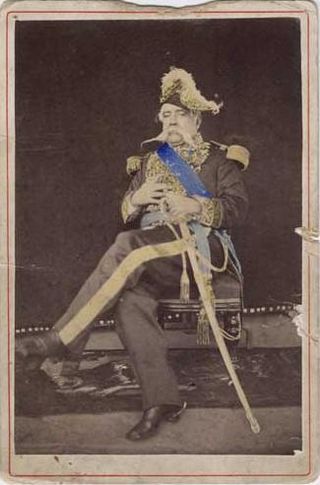 10
Basilio José Urrutia Vásquez fue un militar y político chileno que tuvo el grado de General de División y fue el General más antiguo de Ejército y General en Jefe del Ejército de la Frontera desde el...
10
Basilio José Urrutia Vásquez fue un militar y político chileno que tuvo el grado de General de División y fue el General más antiguo de Ejército y General en Jefe del Ejército de la Frontera desde el...
Raúl Silva Henríquez
 10
Raúl Silva Henríquez SDB was a Chilean prelate of the Catholic Church, a cardinal from 1962. He served as Archbishop of Santiago de Chile from 1961 to 1983 and as Bishop of Valparaíso from 1959 to...
10
Raúl Silva Henríquez SDB was a Chilean prelate of the Catholic Church, a cardinal from 1962. He served as Archbishop of Santiago de Chile from 1961 to 1983 and as Bishop of Valparaíso from 1959 to...
Vicente Huidobro
 10
Vicente García-Huidobro Fernández was a Chilean poet born to an aristocratic family. He promoted the avant-garde literary movement in Chile and was the creator and greatest exponent of the literary...
10
Vicente García-Huidobro Fernández was a Chilean poet born to an aristocratic family. He promoted the avant-garde literary movement in Chile and was the creator and greatest exponent of the literary...
Gabriel González Videla
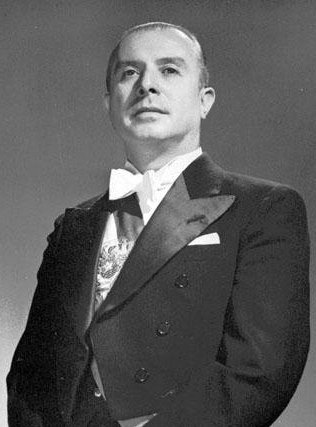 10
Gabriel Enrique González Videla was a Chilean politician and lawyer who served as the 24th president of Chile from 1946 to 1952. He had previously been a member of the Chamber of Deputies from 1930...
10
Gabriel Enrique González Videla was a Chilean politician and lawyer who served as the 24th president of Chile from 1946 to 1952. He had previously been a member of the Chamber of Deputies from 1930...
Violeta Parra
Manuel Hipólito Orella
 9
Agustín Manuel Hipólito Orella Macaya, known simply as Manuel Hipólito Orella, was a Chilean naval officer who made a career in the Chilean Navy. He was one of the first Chilean midshipmen who...
9
Agustín Manuel Hipólito Orella Macaya, known simply as Manuel Hipólito Orella, was a Chilean naval officer who made a career in the Chilean Navy. He was one of the first Chilean midshipmen who...
Francisco de Aguirre (conquistador)
 9
Francisco de Aguirre was a Spanish conquistador who participated in the conquest of Peru, Bolivia, Chile and Argentina.
9
Francisco de Aguirre was a Spanish conquistador who participated in the conquest of Peru, Bolivia, Chile and Argentina.
Pedro León Gallo
 9
Pedro León Díaz Gallo was an Argentine statesman and Catholic priest. He was a representative to the Congress of Tucumán which on 9 July 1816 declared the Independence of Argentina.
9
Pedro León Díaz Gallo was an Argentine statesman and Catholic priest. He was a representative to the Congress of Tucumán which on 9 July 1816 declared the Independence of Argentina.
Carrera family
 9
The Carrera family of Chile became politically influential during the colonial period and played a significant role in the Chilean independence. They remained politically important throughout the...
9
The Carrera family of Chile became politically influential during the colonial period and played a significant role in the Chilean independence. They remained politically important throughout the...
Juan Martínez de Rozas
 9
Juan Martínez de Rozas Correa was a Chilean lawyer and politician, he was also the first leader in the Chilean fight for independence.
9
Juan Martínez de Rozas Correa was a Chilean lawyer and politician, he was also the first leader in the Chilean fight for independence.
Michael (archangel)
 9
Michael, also called Saint Michael the Archangel, Archangel Michael and Saint Michael the Taxiarch is an archangel in Judaism, Christianity, Islam, and the Baha'i faith. The earliest surviving...
9
Michael, also called Saint Michael the Archangel, Archangel Michael and Saint Michael the Taxiarch is an archangel in Judaism, Christianity, Islam, and the Baha'i faith. The earliest surviving...
Juan Antonio Ríos
 9
Juan Antonio Ríos Morales was a Chilean political figure who served as president of Chile from 1942 to 1946, during the height of World War II. He died in office.
9
Juan Antonio Ríos Morales was a Chilean political figure who served as president of Chile from 1942 to 1946, during the height of World War II. He died in office.
José Santos Ossa
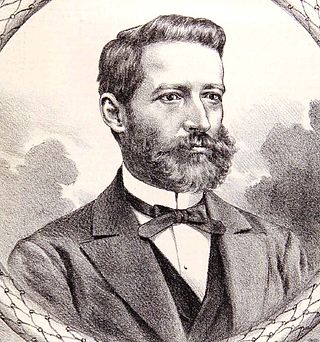 8
José Santos Ossa Vega fue un minero, explorador y exitoso empresario y banquero de la industria del salitre chileno. Se le atribuye la fundación del poblado de Antofagasta.
8
José Santos Ossa Vega fue un minero, explorador y exitoso empresario y banquero de la industria del salitre chileno. Se le atribuye la fundación del poblado de Antofagasta.
Santiago Bueras
 8
José Antonio Santiago María Estanislao Bueras y Avaría fue un militar chileno que se unió en 1810 al naciente ejército chileno y luego luchó en la guerra de la Independencia de Chile. Se le conoce...
8
José Antonio Santiago María Estanislao Bueras y Avaría fue un militar chileno que se unió en 1810 al naciente ejército chileno y luego luchó en la guerra de la Independencia de Chile. Se le conoce...
Eduardo Frei Montalva
 8
Eduardo Nicanor Frei Montalva was a Chilean political leader. In his long political career, he was Minister of Public Works, president of his Christian Democratic Party, senator, President of the...
8
Eduardo Nicanor Frei Montalva was a Chilean political leader. In his long political career, he was Minister of Public Works, president of his Christian Democratic Party, senator, President of the...
Saint Anne
 8
According to apocrypha, as well as Christian and Islamic tradition, Saint Anne was the mother of Mary, the wife of Joachim and the maternal grandmother of Jesus. Mary's mother is not named in the...
8
According to apocrypha, as well as Christian and Islamic tradition, Saint Anne was the mother of Mary, the wife of Joachim and the maternal grandmother of Jesus. Mary's mother is not named in the...
Michimalonco
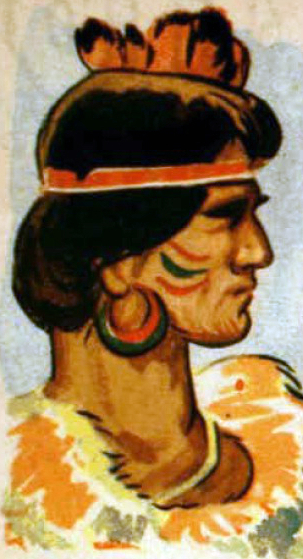 8
Michima Lonco was a Picunche chief said to be a great warrior, born in the Aconcagua Valley and educated in Cusco by the Inca Empire. He presented himself to the Spaniards, naked and covered by a...
8
Michima Lonco was a Picunche chief said to be a great warrior, born in the Aconcagua Valley and educated in Cusco by the Inca Empire. He presented himself to the Spaniards, naked and covered by a...
Lascar
 8
A lascar was a sailor or militiaman from the Indian subcontinent, Southeast Asia, the Arab world, British Somaliland or other lands east of the Cape of Good Hope who was employed on European ships...
8
A lascar was a sailor or militiaman from the Indian subcontinent, Southeast Asia, the Arab world, British Somaliland or other lands east of the Cape of Good Hope who was employed on European ships...
Rayén Quitral
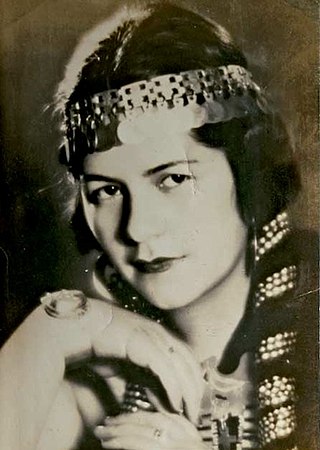 8
María Georgina Quitral Espinoza, more commonly known as Rayén Quitral, was a Chilean soprano and stage actress of Mapuche and Picunche descent. Known for her performance of the character of the...
8
María Georgina Quitral Espinoza, more commonly known as Rayén Quitral, was a Chilean soprano and stage actress of Mapuche and Picunche descent. Known for her performance of the character of the...
Domingo Faustino Sarmiento
 7
Domingo Faustino Sarmiento was an Argentine activist, intellectual, writer, statesman and President of Argentina. His writing spanned a wide range of genres and topics, from journalism to...
7
Domingo Faustino Sarmiento was an Argentine activist, intellectual, writer, statesman and President of Argentina. His writing spanned a wide range of genres and topics, from journalism to...
Benjamín Muñoz Gamero
 7
Benjamín Muñoz Gamero was a Chilean naval officer, senator and governor of Punta Arenas in the Straits of Magellan. He was killed during the Mutiny of Cambiazo in 1851.
7
Benjamín Muñoz Gamero was a Chilean naval officer, senator and governor of Punta Arenas in the Straits of Magellan. He was killed during the Mutiny of Cambiazo in 1851.
Baldomero Lillo
 7
Baldomero Lillo was a Chilean Naturalist author, whose works had social protest as their main theme.
7
Baldomero Lillo was a Chilean Naturalist author, whose works had social protest as their main theme.
Saint Nicholas
 7
Saint Nicholas of Myra, also known as Nicholas of Bari, was an early Christian bishop of Greek descent from the maritime city of Patara in Anatolia during the time of the Roman Empire. Because of the...
7
Saint Nicholas of Myra, also known as Nicholas of Bari, was an early Christian bishop of Greek descent from the maritime city of Patara in Anatolia during the time of the Roman Empire. Because of the...
Clare of Assisi
 7
Chiara Offreduccio, known as Clare of Assisi, was an Italian saint who was one of the first followers of Francis of Assisi.
7
Chiara Offreduccio, known as Clare of Assisi, was an Italian saint who was one of the first followers of Francis of Assisi.
Saint Lucy
 7
Lucia of Syracuse (283–304), also called Saint Lucia was a Roman Christian martyr who died during the Diocletianic Persecution. She is venerated as a saint in Catholic, Anglican, Lutheran, and...
7
Lucia of Syracuse (283–304), also called Saint Lucia was a Roman Christian martyr who died during the Diocletianic Persecution. She is venerated as a saint in Catholic, Anglican, Lutheran, and...
Valentín Letelier
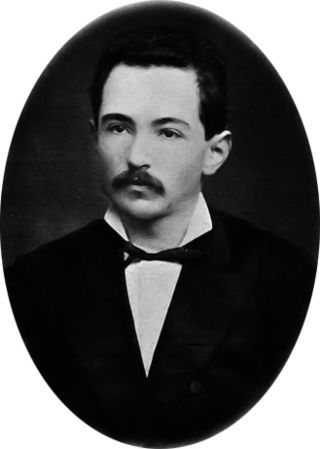 7
Valentín Letelier Madariaga fue un abogado, político, bombero e intelectual chileno. Se especializó en los temas de educación y derecho administrativo. Fue miembro del Partido Radical y diputado por...
7
Valentín Letelier Madariaga fue un abogado, político, bombero e intelectual chileno. Se especializó en los temas de educación y derecho administrativo. Fue miembro del Partido Radical y diputado por...
Jerónimo de Alderete
 7
Jerónimo de Alderete y Mercado was a Spanish conquistador who was later named governor of Chile, but died before he could assume his post.
7
Jerónimo de Alderete y Mercado was a Spanish conquistador who was later named governor of Chile, but died before he could assume his post.
Laura Vicuña
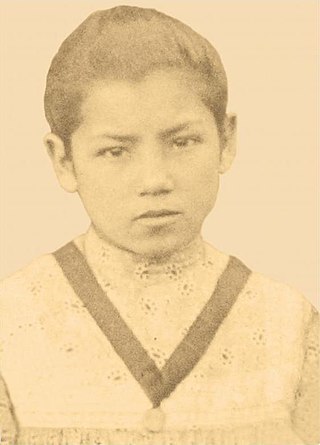 7
Laura del Carmen Vicuña Pino was a Chilean child who was noted for her religious devotion. She was beatified by Pope John Paul II in 1988 as the patron of abuse victims, having herself experienced...
7
Laura del Carmen Vicuña Pino was a Chilean child who was noted for her religious devotion. She was beatified by Pope John Paul II in 1988 as the patron of abuse victims, having herself experienced...
Arturo Pérez Canto
 7
Arturo Pérez Canto fue un militar chileno. Subteniente de la 4.ª compañía del batallón «Chacabuco» y héroe de la batalla de La Concepción.
7
Arturo Pérez Canto fue un militar chileno. Subteniente de la 4.ª compañía del batallón «Chacabuco» y héroe de la batalla de La Concepción.
Augustine of Hippo
 7
Augustine of Hippo, also known as Saint Augustine, was a theologian and philosopher of Berber origin and the bishop of Hippo Regius in Numidia, Roman North Africa. His writings influenced the...
7
Augustine of Hippo, also known as Saint Augustine, was a theologian and philosopher of Berber origin and the bishop of Hippo Regius in Numidia, Roman North Africa. His writings influenced the...
Marcela Paz
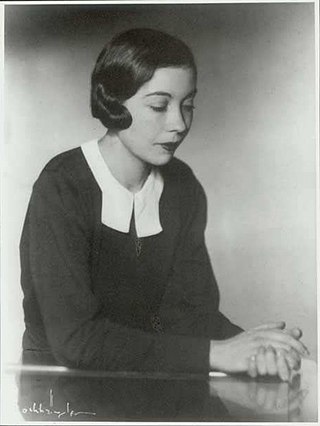 7
Marcela Paz was the pen name of Esther Huneeus Ramos Falla Salas de Claro, a Chilean writer. She also used the pen names of Paula de la Sierra, Lukim Retse, P. Neka and Juanita Godoy. She was a...
7
Marcela Paz was the pen name of Esther Huneeus Ramos Falla Salas de Claro, a Chilean writer. She also used the pen names of Paula de la Sierra, Lukim Retse, P. Neka and Juanita Godoy. She was a...
Pablo de Rokha
 7
Pablo de Rokha was a Chilean poet. He won the Chilean Premio Nacional de Literatura in 1965 and is counted among the four greats of Chilean poetry, along with Pablo Neruda, Vicente Huidobro and...
7
Pablo de Rokha was a Chilean poet. He won the Chilean Premio Nacional de Literatura in 1965 and is counted among the four greats of Chilean poetry, along with Pablo Neruda, Vicente Huidobro and...
Raphael (archangel)
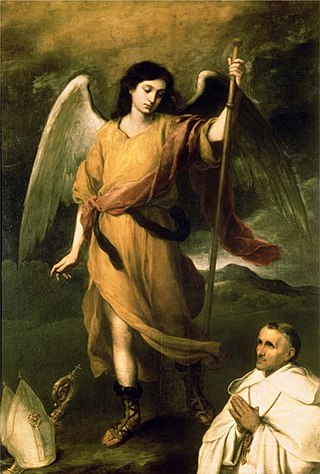 6
Raphael is an archangel first mentioned in the Book of Tobit and in 1 Enoch, both estimated to date from between the 3rd and 2nd century BCE. In later Jewish tradition, he became identified as one of...
6
Raphael is an archangel first mentioned in the Book of Tobit and in 1 Enoch, both estimated to date from between the 3rd and 2nd century BCE. In later Jewish tradition, he became identified as one of...
Manuel Bustos
 6
Manuel Antonio Bustos Huerta fue un sindicalista y político chileno. Fue el primer presidente de la Central Unitaria de Trabajadores (CUT), entre 1988 y 1996, y ejerció como diputado de la República...
6
Manuel Antonio Bustos Huerta fue un sindicalista y político chileno. Fue el primer presidente de la Central Unitaria de Trabajadores (CUT), entre 1988 y 1996, y ejerció como diputado de la República...
Margaret of Cortona
 6
Margaret of Cortona was an Italian penitent of the Third Order of Saint Francis. She was born in Laviano, near Perugia, and died in Cortona. She was canonised in 1728.
6
Margaret of Cortona was an Italian penitent of the Third Order of Saint Francis. She was born in Laviano, near Perugia, and died in Cortona. She was canonised in 1728.
Mariano Egaña
 6
Mariano Egaña Fabres was a Chilean lawyer, conservative politician and the main writer of the Chilean Constitution of 1833.
6
Mariano Egaña Fabres was a Chilean lawyer, conservative politician and the main writer of the Chilean Constitution of 1833.
Thomas the Apostle
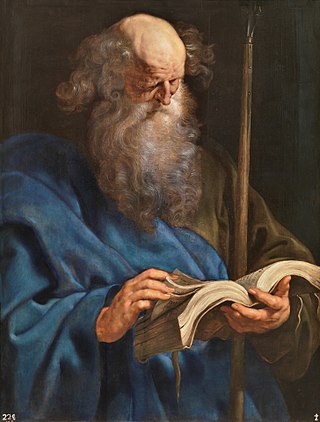 6
Thomas the Apostle, also known as Didymus, was one of the Twelve Apostles of Jesus according to the New Testament. Thomas is commonly known as "Doubting Thomas" because he initially doubted the...
6
Thomas the Apostle, also known as Didymus, was one of the Twelve Apostles of Jesus according to the New Testament. Thomas is commonly known as "Doubting Thomas" because he initially doubted the...
Philomena
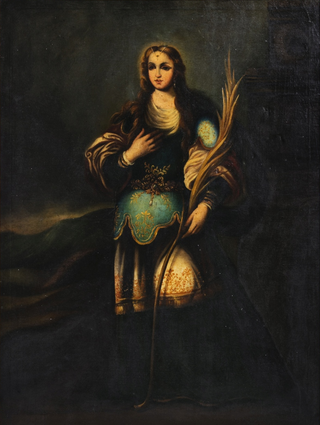 6
Philomena, also known as Saint Philomena or Philomena of Rome was a virgin martyr whose remains were discovered on May 24–25, 1802, in the Catacomb of Priscilla. Three tiles enclosing the tomb bore...
6
Philomena, also known as Saint Philomena or Philomena of Rome was a virgin martyr whose remains were discovered on May 24–25, 1802, in the Catacomb of Priscilla. Three tiles enclosing the tomb bore...
Vincent of Saragossa
 6
Vincent of Saragossa, the Protomartyr of Spain, was a deacon of the Church of Saragossa. He is the patron saint of Lisbon and Valencia. His feast day is 22 January in the Catholic Church and Anglican...
6
Vincent of Saragossa, the Protomartyr of Spain, was a deacon of the Church of Saragossa. He is the patron saint of Lisbon and Valencia. His feast day is 22 January in the Catholic Church and Anglican...
Carlos Valdovinos
 6
Carlos Valdovinos Valdovinos was a Chilean politician and lawyer who served as bi-minister during Pedro Aguirre Cerda's government.
6
Carlos Valdovinos Valdovinos was a Chilean politician and lawyer who served as bi-minister during Pedro Aguirre Cerda's government.
Germán Riesco
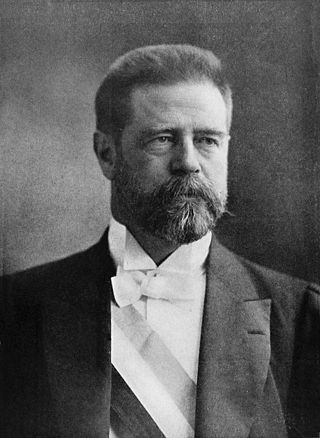 6
Germán Riesco Errázuriz was a Chilean political figure, and he served as President of Chile between 1901 and 1906.
6
Germán Riesco Errázuriz was a Chilean political figure, and he served as President of Chile between 1901 and 1906.
Pedro Prado
 6
Pedro Prado Calvo was a Chilean writer and architect. He won the Chilean National Prize for Literature in 1949.
6
Pedro Prado Calvo was a Chilean writer and architect. He won the Chilean National Prize for Literature in 1949.
Saint George
 6
Saint George, also George of Lydda, was an early Christian martyr who is venerated as a saint in Christianity. According to tradition, he was a soldier in the Roman army. Of Cappadocian Greek origin,...
6
Saint George, also George of Lydda, was an early Christian martyr who is venerated as a saint in Christianity. According to tradition, he was a soldier in the Roman army. Of Cappadocian Greek origin,...
Jorge Montt
 6
Jorge Montt Álvarez was a vice admiral in the Chilean Navy and president of Chile from 1891 to 1896.
6
Jorge Montt Álvarez was a vice admiral in the Chilean Navy and president of Chile from 1891 to 1896.
Luke the Evangelist
 6
Luke the Evangelist is one of the Four Evangelists—the four traditionally ascribed authors of the canonical gospels. The Early Church Fathers ascribed to him authorship of both the Gospel of Luke and...
6
Luke the Evangelist is one of the Four Evangelists—the four traditionally ascribed authors of the canonical gospels. The Early Church Fathers ascribed to him authorship of both the Gospel of Luke and...
Inés Suárez
 6
Inés Suárez, was a Spanish conquistadora who participated in the Conquest of Chile with Pedro de Valdivia, successfully defending the newly conquered Santiago against an attack in 1541 by the...
6
Inés Suárez, was a Spanish conquistadora who participated in the Conquest of Chile with Pedro de Valdivia, successfully defending the newly conquered Santiago against an attack in 1541 by the...
Ferdinand II of Aragon
 6
Ferdinand II was King of Aragon from 1479 until his death in 1516. As the husband of Queen Isabella I of Castile, he was also King of Castile from 1475 to 1504. He reigned jointly with Isabella over...
6
Ferdinand II was King of Aragon from 1479 until his death in 1516. As the husband of Queen Isabella I of Castile, he was also King of Castile from 1475 to 1504. He reigned jointly with Isabella over...
Oscar Castro-Neves
 6
Oscar Castro-Neves, was a Brazilian guitarist, arranger, and composer who is considered a founding figure in bossa nova.
6
Oscar Castro-Neves, was a Brazilian guitarist, arranger, and composer who is considered a founding figure in bossa nova.
Mariano Sánchez Fontecilla
 5
Mariano Elías Sánchez Fontecilla fue un abogado, diplomático y político chileno, ministro de Estado en varios gobiernos.
5
Mariano Elías Sánchez Fontecilla fue un abogado, diplomático y político chileno, ministro de Estado en varios gobiernos.
Óscar Bonilla (militar)
 5
Óscar Bonilla Bradanovic fue un militar y político chileno de ascendencia croata. Se desempeñó como ministro del Interior y de Defensa Nacional durante la dictadura militar, presidida por el general...
5
Óscar Bonilla Bradanovic fue un militar y político chileno de ascendencia croata. Se desempeñó como ministro del Interior y de Defensa Nacional durante la dictadura militar, presidida por el general...
Diego Dublé Almeyda
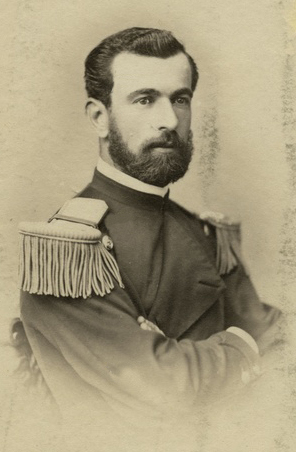 5
Diego Dublé Almeyda was a Chilean Army officer. From 1874 to 1878 he was governor of governor of Punta Arenas in the Straits of Magellan. In 1876 he travelled on board of Chacabuco to Port Stanley in...
5
Diego Dublé Almeyda was a Chilean Army officer. From 1874 to 1878 he was governor of governor of Punta Arenas in the Straits of Magellan. In 1876 he travelled on board of Chacabuco to Port Stanley in...
Didacus of Alcalá
 5
Didacus of Alcalá, also known as Diego de San Nicolás, was a Spanish Franciscan lay brother who served among the first group of missionaries to the newly conquered Canary Islands. He died at Alcalá...
5
Didacus of Alcalá, also known as Diego de San Nicolás, was a Spanish Franciscan lay brother who served among the first group of missionaries to the newly conquered Canary Islands. He died at Alcalá...
Catherine of Alexandria
 5
Catherine of Alexandria, also spelled Katherine is, according to tradition, a Christian saint and virgin, who was martyred in the early fourth century at the hands of the emperor Maxentius. According...
5
Catherine of Alexandria, also spelled Katherine is, according to tradition, a Christian saint and virgin, who was martyred in the early fourth century at the hands of the emperor Maxentius. According...
Saint Lawrence
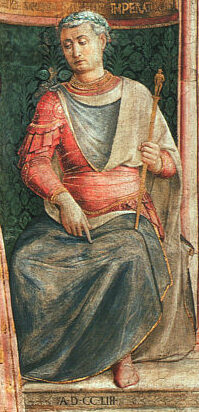 5
Saint Lawrence or Laurence was one of the seven deacons of the city of Rome under Pope Sixtus II who were martyred in the persecution of the Christians that the Roman Emperor Valerian ordered in 258.
5
Saint Lawrence or Laurence was one of the seven deacons of the city of Rome under Pope Sixtus II who were martyred in the persecution of the Christians that the Roman Emperor Valerian ordered in 258.
Pedro Lira
 5
Pedro Francisco Lira Rencoret was a Chilean painter and art critic, who organized exhibitions that led to the establishment of the Chilean National Museum of Fine Arts. He is best known for his...
5
Pedro Francisco Lira Rencoret was a Chilean painter and art critic, who organized exhibitions that led to the establishment of the Chilean National Museum of Fine Arts. He is best known for his...
José Manso de Velasco, 1st Count of Superunda
 5
José Antonio Manso de Velasco y Sánchez de Samaniego, KOS was a Spanish soldier and politician who served as governor of Chile and viceroy of Peru.
5
José Antonio Manso de Velasco y Sánchez de Samaniego, KOS was a Spanish soldier and politician who served as governor of Chile and viceroy of Peru.
Robinson Crusoe
 5
Robinson Crusoe is an English adventure novel by Daniel Defoe, first published on 25 April 1719. Written with a combination of Epistolary, confessional, and didactic forms, the book follows the title...
5
Robinson Crusoe is an English adventure novel by Daniel Defoe, first published on 25 April 1719. Written with a combination of Epistolary, confessional, and didactic forms, the book follows the title...
Luis Pardo
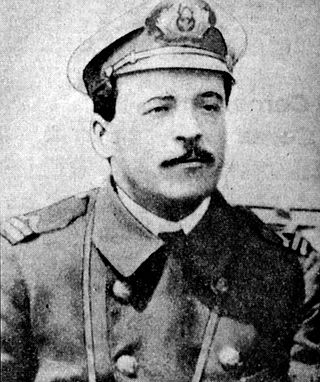 5
Luis Alberto Pardo Villalón was a Chilean Navy officer who, in August 1916, commanded the steam tug Yelcho to rescue the 22 stranded crewmen of Sir Ernest Shackleton's ship, Endurance, part of the...
5
Luis Alberto Pardo Villalón was a Chilean Navy officer who, in August 1916, commanded the steam tug Yelcho to rescue the 22 stranded crewmen of Sir Ernest Shackleton's ship, Endurance, part of the...
Dario Salas Sommer
 5
Darío Salas Sommer was a Chilean philosopher, scientist and humanist. He is known especially for his exploration of moral aspects of human life and personal development, described in his notable...
5
Darío Salas Sommer was a Chilean philosopher, scientist and humanist. He is known especially for his exploration of moral aspects of human life and personal development, described in his notable...
Alphonsus Liguori
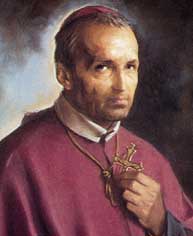 5
Alphonsus Liguori, CSsR, sometimes called Alphonsus Maria de Liguori or Saint Alphonsus Liguori, was an Italian Catholic bishop, spiritual writer, composer, musician, artist, poet, lawyer, scholastic...
5
Alphonsus Liguori, CSsR, sometimes called Alphonsus Maria de Liguori or Saint Alphonsus Liguori, was an Italian Catholic bishop, spiritual writer, composer, musician, artist, poet, lawyer, scholastic...
Luis Uribe
 5
Luis Uribe Orrego was a vice-admiral of the Chilean Navy and a hero of the War of the Pacific.
5
Luis Uribe Orrego was a vice-admiral of the Chilean Navy and a hero of the War of the Pacific.
Rodrigo de Triana
 5
Rodrigo de Triana was a Spanish sailor, believed to be the first European from the Age of Exploration to have seen the Americas. Born as Juan Rodríguez Bermejo, Triana was the son of hidalgo and...
5
Rodrigo de Triana was a Spanish sailor, believed to be the first European from the Age of Exploration to have seen the Americas. Born as Juan Rodríguez Bermejo, Triana was the son of hidalgo and...
Manuel Rojas (author)
 5
Manuel Rojas Sepúlveda was a Chilean writer and journalist.
5
Manuel Rojas Sepúlveda was a Chilean writer and journalist.
Vicente Reyes (politician)
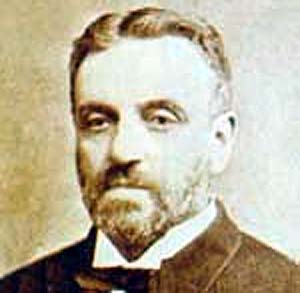 5
Pedro Vicente Reyes Palazuelos, was a Chilean lawyer, journalist, political figure, and candidate during the 1896 presidential election.
5
Pedro Vicente Reyes Palazuelos, was a Chilean lawyer, journalist, political figure, and candidate during the 1896 presidential election.
Miguel de Cervantes
 5
Miguel de Cervantes Saavedra was an Early Modern Spanish writer widely regarded as the greatest writer in the Spanish language and one of the world's pre-eminent novelists. He is best known for his...
5
Miguel de Cervantes Saavedra was an Early Modern Spanish writer widely regarded as the greatest writer in the Spanish language and one of the world's pre-eminent novelists. He is best known for his...
Víctor Jara
 5
Víctor Lidio Jara Martínez was a Chilean teacher, theater director, poet, singer-songwriter and Communist political activist. He developed Chilean theater by directing a broad array of works, ranging...
5
Víctor Lidio Jara Martínez was a Chilean teacher, theater director, poet, singer-songwriter and Communist political activist. He developed Chilean theater by directing a broad array of works, ranging...
Sophia of Rome
 5
Saint Sophia of Rome is venerated as a Christian martyr.
She is identified in hagiographical tradition with the figure of Sophia of Milan, the mother of Saints Faith, Hope and Charity, whose...
5
Saint Sophia of Rome is venerated as a Christian martyr.
She is identified in hagiographical tradition with the figure of Sophia of Milan, the mother of Saints Faith, Hope and Charity, whose...
Mark the Evangelist
 5
Mark the Evangelist also known as John Mark or Saint Mark, is the person who is traditionally ascribed to be the author of the Gospel of Mark. Modern Bible scholars have concluded that the Gospel of...
5
Mark the Evangelist also known as John Mark or Saint Mark, is the person who is traditionally ascribed to be the author of the Gospel of Mark. Modern Bible scholars have concluded that the Gospel of...
Gabriel
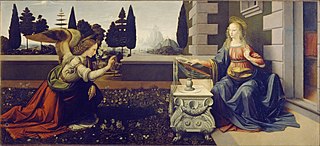 5
In the Abrahamic religions, Gabriel is an archangel with the power to announce God's will to mankind. He is mentioned in the Hebrew Bible, the New Testament, the Quran and the Kitáb-i-Aqdas. Many...
5
In the Abrahamic religions, Gabriel is an archangel with the power to announce God's will to mankind. He is mentioned in the Hebrew Bible, the New Testament, the Quran and the Kitáb-i-Aqdas. Many...
Arturo Alessandri
 5
Arturo Fortunato Alessandri Palma was a Chilean political figure and reformer who served thrice as president of Chile, first from 1920 to 1924, then from March to October 1925, and finally from 1932...
5
Arturo Fortunato Alessandri Palma was a Chilean political figure and reformer who served thrice as president of Chile, first from 1920 to 1924, then from March to October 1925, and finally from 1932...
Juan Luis Sanfuentes
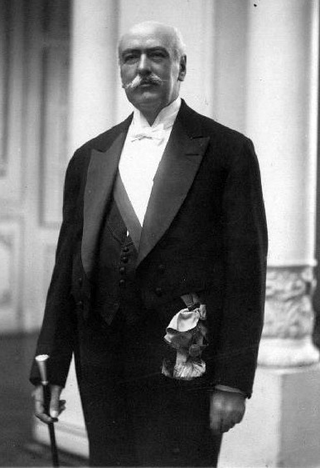 5
Juan Luis Sanfuentes Andonaegui was President of Chile between 1915 and 1920.
5
Juan Luis Sanfuentes Andonaegui was President of Chile between 1915 and 1920.
Saint Valentine
 5
Saint Valentine was a 3rd-century Roman saint, commemorated in Western Christianity on February 14 and in Eastern Orthodoxy on July 6. From the High Middle Ages, his feast day has been associated...
5
Saint Valentine was a 3rd-century Roman saint, commemorated in Western Christianity on February 14 and in Eastern Orthodoxy on July 6. From the High Middle Ages, his feast day has been associated...
Francisco de Villagra
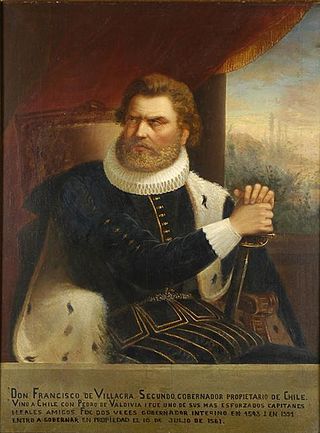 5
Francisco de Villagra Velázquez was a Spanish conquistador, and three times governor of Chile.
5
Francisco de Villagra Velázquez was a Spanish conquistador, and three times governor of Chile.
Francisco Coloane
Rodrigo de Quiroga
 5
Rodrigo de Quiroga López de Ulloa was a Spanish conquistador of Galician origin. He was twice the Royal Governor of Chile.
5
Rodrigo de Quiroga López de Ulloa was a Spanish conquistador of Galician origin. He was twice the Royal Governor of Chile.
Luis Gómez Carreño
 4
Luis Esteban Gómez Carreño was a Chilean naval officer.
Having joined the navy aged 15 on board the Huáscar, he later served as squadron commander in chief, director of the Naval School and Minister...
4
Luis Esteban Gómez Carreño was a Chilean naval officer.
Having joined the navy aged 15 on board the Huáscar, he later served as squadron commander in chief, director of the Naval School and Minister...
Saint Laura
 4
Laura of Cordoba was a Spanish Christian who lived in Muslim Spain during the 9th century. She was born in Córdoba, and became a nun at Cuteclara after her husband died, eventually rising to become...
4
Laura of Cordoba was a Spanish Christian who lived in Muslim Spain during the 9th century. She was born in Córdoba, and became a nun at Cuteclara after her husband died, eventually rising to become...
Louis Pasteur
 4
Louis Pasteur was a French chemist, pharmacist, and microbiologist renowned for his discoveries of the principles of vaccination, microbial fermentation, and pasteurization, the last of which was...
4
Louis Pasteur was a French chemist, pharmacist, and microbiologist renowned for his discoveries of the principles of vaccination, microbial fermentation, and pasteurization, the last of which was...
Francisco Antonio Encina
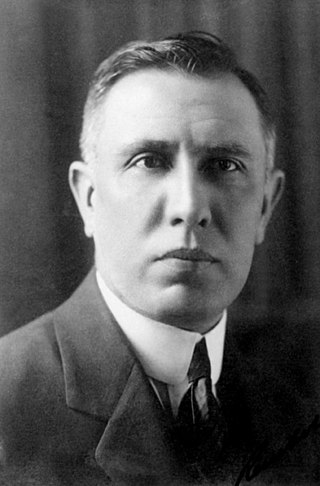 4
Francisco Antonio Encina Armanet was a Chilean politician, agricultural businessman, political essayist, historian and prominent white nationalist. He authored the History of Chile from Prehistory to...
4
Francisco Antonio Encina Armanet was a Chilean politician, agricultural businessman, political essayist, historian and prominent white nationalist. He authored the History of Chile from Prehistory to...
Jaime Guzmán
 4
Jaime Jorge Guzmán Errázuriz was a Chilean constitutional law professor, politician, and founding member of the conservative Independent Democratic Union party. In the 1960s, he strongly opposed the...
4
Jaime Jorge Guzmán Errázuriz was a Chilean constitutional law professor, politician, and founding member of the conservative Independent Democratic Union party. In the 1960s, he strongly opposed the...
Juan de Dios
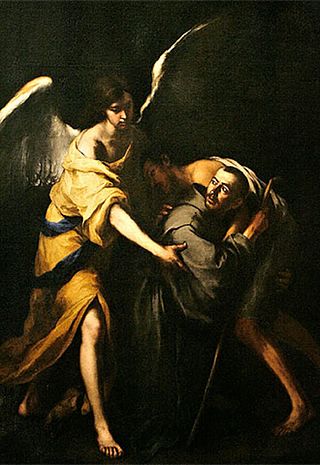 4
San Juan de Dios, es un santo portugues de la Iglesia católica. Fue enfermero y fundador de la Orden Hospitalaria de San Juan de Dios.Fue el iniciador del hospital moderno y es patrón de los...
4
San Juan de Dios, es un santo portugues de la Iglesia católica. Fue enfermero y fundador de la Orden Hospitalaria de San Juan de Dios.Fue el iniciador del hospital moderno y es patrón de los...
René Schneider
 4
General René Schneider Chereau was the commander-in-chief of the Chilean Army at the time of the 1970 Chilean presidential election, when he was assassinated during a botched kidnapping attempt. He...
4
General René Schneider Chereau was the commander-in-chief of the Chilean Army at the time of the 1970 Chilean presidential election, when he was assassinated during a botched kidnapping attempt. He...
Ramón Carnicer
 4
Ramón Carnicer i Batlle was a Spanish composer and opera conductor, today best known for composing the National Anthem of Chile.
4
Ramón Carnicer i Batlle was a Spanish composer and opera conductor, today best known for composing the National Anthem of Chile.
Antonio José de Sucre
 4
Antonio José de Sucre y Alcalá, known as the "Gran Mariscal de Ayacucho", was a Venezuelan general and politician who served as the president of Bolivia from 1825 to 1828. A close friend and...
4
Antonio José de Sucre y Alcalá, known as the "Gran Mariscal de Ayacucho", was a Venezuelan general and politician who served as the president of Bolivia from 1825 to 1828. A close friend and...
Enrique Mac Iver
 4
Enrique Mac Iver Rodríguez was a Chilean lawyer and politician. He participated in the 1891 Chilean Civil War on the side of the victorious Congressist faction doing himself the first draft for the...
4
Enrique Mac Iver Rodríguez was a Chilean lawyer and politician. He participated in the 1891 Chilean Civil War on the side of the victorious Congressist faction doing himself the first draft for the...
Luis Acevedo Acevedo
 4
Luis Alberto Acevedo Acevedo, fue un aviador y ciclista chileno, considerado uno de los pioneros y primer mártir de la aeronáutica de su país.
4
Luis Alberto Acevedo Acevedo, fue un aviador y ciclista chileno, considerado uno de los pioneros y primer mártir de la aeronáutica de su país.
Guido Beck de Ramberga
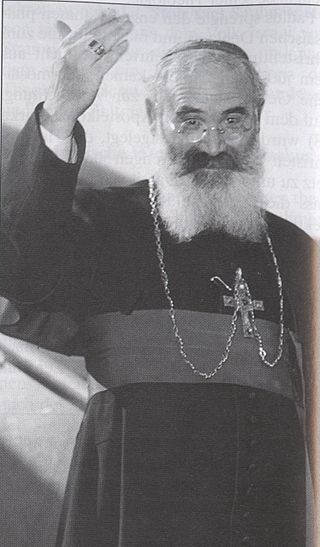 4
Monseñor Guido Benedikt Beck fue un sacerdote misionero de origen alemán, perteneciente a la Orden de los Hermanos Menores Capuchinos y prefecto apostólico de la Araucanía.
4
Monseñor Guido Benedikt Beck fue un sacerdote misionero de origen alemán, perteneciente a la Orden de los Hermanos Menores Capuchinos y prefecto apostólico de la Araucanía.
Felix of Nola
 4
Felix of Nola was a Christian presbyter at Nola near Naples in Italy. He sold off his possessions to give to the poor, but was arrested and tortured for his Christian faith during the persecution of...
4
Felix of Nola was a Christian presbyter at Nola near Naples in Italy. He sold off his possessions to give to the poor, but was arrested and tortured for his Christian faith during the persecution of...
Roque González y de Santa Cruz
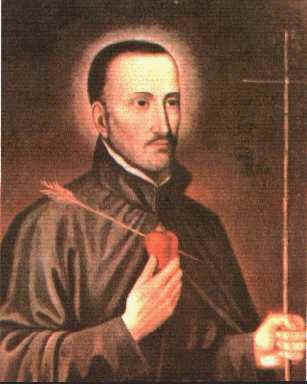 4
Roque González de Santa Cruz, SJ was a Jesuit priest who was the first missionary among the Guarani people in Paraguay. He is honored as a martyr and saint by the Catholic Church.
4
Roque González de Santa Cruz, SJ was a Jesuit priest who was the first missionary among the Guarani people in Paraguay. He is honored as a martyr and saint by the Catholic Church.
Alice Reyes
 4
Alice Garcia Reyes is a Filipina dancer, choreographer, teacher, director and producer. The founder of Ballet Philippines, she received since June 20, 2014 from the Philippine President Benigno...
4
Alice Garcia Reyes is a Filipina dancer, choreographer, teacher, director and producer. The founder of Ballet Philippines, she received since June 20, 2014 from the Philippine President Benigno...
Dagoberto Godoy
 4
Dagoberto Godoy Fuentealba was a Chilean military pilot and the first person to fly over the Andes.
4
Dagoberto Godoy Fuentealba was a Chilean military pilot and the first person to fly over the Andes.
Eduardo Barrios
 4
Eduardo Barrios, was a Chilean writer and poet.
4
Eduardo Barrios, was a Chilean writer and poet.
Pope Gregory I
 4
Pope Gregory I, commonly known as Saint Gregory the Great, was the 64th Bishop of Rome from 3 September 590 to his death. He is known for instituting the first recorded large-scale mission from Rome,...
4
Pope Gregory I, commonly known as Saint Gregory the Great, was the 64th Bishop of Rome from 3 September 590 to his death. He is known for instituting the first recorded large-scale mission from Rome,...
Amanda Labarca
 4
Amanda Labarca Hubertson, was a Chilean diplomat, educator, writer and feminist. Her work was directed mainly at improving the situation of Latin American women and women's suffrage in Chile.
4
Amanda Labarca Hubertson, was a Chilean diplomat, educator, writer and feminist. Her work was directed mainly at improving the situation of Latin American women and women's suffrage in Chile.
Albertus Magnus
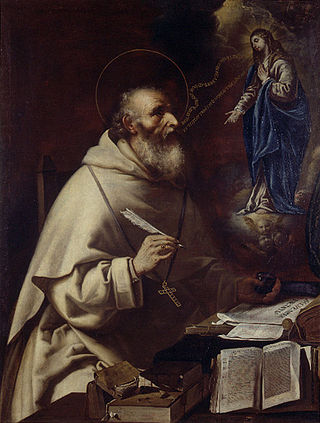 4
Albertus Magnus, also known as Saint Albert the Great, Albert of Swabia
or Albert of Cologne, was a German Dominican friar, philosopher, scientist, and bishop, considered one of the greatest medieval...
4
Albertus Magnus, also known as Saint Albert the Great, Albert of Swabia
or Albert of Cologne, was a German Dominican friar, philosopher, scientist, and bishop, considered one of the greatest medieval...
Pope John XXIII
 4
Pope John XXIII was head of the Catholic Church and sovereign of the Vatican City State from 28 October 1958 until his death in June 1963.
4
Pope John XXIII was head of the Catholic Church and sovereign of the Vatican City State from 28 October 1958 until his death in June 1963.
Arturo Gordon
 4
Arturo Gordon Vargas fue un pintor chileno perteneciente a la generación de 1913, profesor de la Academia de Bellas Artes de Valparaíso y Viña del Mar.
4
Arturo Gordon Vargas fue un pintor chileno perteneciente a la generación de 1913, profesor de la Academia de Bellas Artes de Valparaíso y Viña del Mar.
Artemio Gutiérrez
 4
Artemio Nicolás Gutiérrez Vidal fue un político chileno del Partido Demócrata. Se desempeñó como Ministro de Estado, Ministro de Industria, Obras Públicas y Ferrocarriles, diputado y senador. Hijo de...
4
Artemio Nicolás Gutiérrez Vidal fue un político chileno del Partido Demócrata. Se desempeñó como Ministro de Estado, Ministro de Industria, Obras Públicas y Ferrocarriles, diputado y senador. Hijo de...
Saint Patrick
 4
Saint Patrick was a fifth-century Romano-British Christian missionary and bishop in Ireland. Known as the "Apostle of Ireland", he is the primary patron saint of Ireland, the other patron saints...
4
Saint Patrick was a fifth-century Romano-British Christian missionary and bishop in Ireland. Known as the "Apostle of Ireland", he is the primary patron saint of Ireland, the other patron saints...
Candelaria Pérez
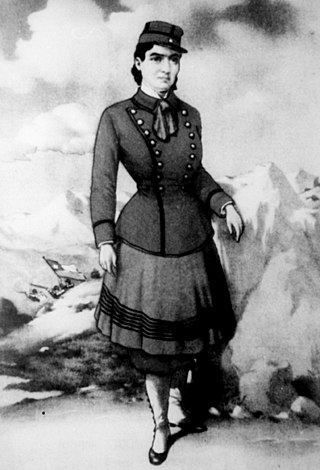 4
Candelaria Pérez was a Chilean soldier who served in the War of the Confederation (1836–39) against the Peru–Bolivian Confederation. She took up a rifle and fought alongside the troops she served...
4
Candelaria Pérez was a Chilean soldier who served in the War of the Confederation (1836–39) against the Peru–Bolivian Confederation. She took up a rifle and fought alongside the troops she served...
Julio Montt Salamanca
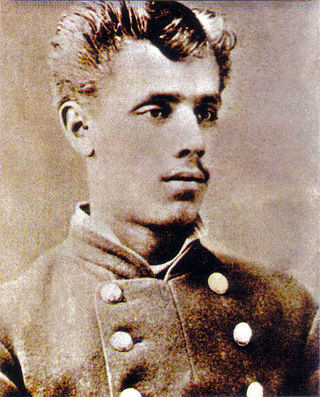 4
Julio Montt Salamanca, fue un militar chileno. Subteniente de la 4.ª compañía del Regimiento «Chacabuco», héroe de la batalla de La Concepción.
4
Julio Montt Salamanca, fue un militar chileno. Subteniente de la 4.ª compañía del Regimiento «Chacabuco», héroe de la batalla de La Concepción.
Carlos Casanueva
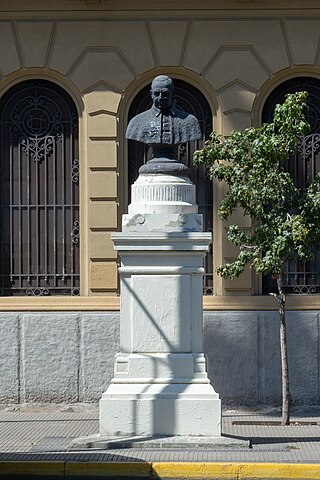 4
Monseñor Carlos Casanueva Opazo fue un sacerdote católico, rector de la Pontificia Universidad Católica de Chile desde 1920 hasta 1953.
4
Monseñor Carlos Casanueva Opazo fue un sacerdote católico, rector de la Pontificia Universidad Católica de Chile desde 1920 hasta 1953.
Elías Fernández Albano
 4
Elías Fernández Albano was a Chilean politician, who was acting president of Chile from August 16, 1910 until his death.
4
Elías Fernández Albano was a Chilean politician, who was acting president of Chile from August 16, 1910 until his death.
Ferdinand III of Castile
 4
Ferdinand III, called the Saint, was King of Castile from 1217 and King of León from 1230 as well as King of Galicia from 1231. He was the son of Alfonso IX of León and Berenguela of Castile. Through...
4
Ferdinand III, called the Saint, was King of Castile from 1217 and King of León from 1230 as well as King of Galicia from 1231. He was the son of Alfonso IX of León and Berenguela of Castile. Through...
Mateo de Toro Zambrano
 4
Mateo de Toro Zambrano y Ureta, 1st Count of La Conquista, was a prominent Spanish military and political figure of Criollo descent. He held the position of a knight in the Order of Santiago and was...
4
Mateo de Toro Zambrano y Ureta, 1st Count of La Conquista, was a prominent Spanish military and political figure of Criollo descent. He held the position of a knight in the Order of Santiago and was...
Francisco Pizarro
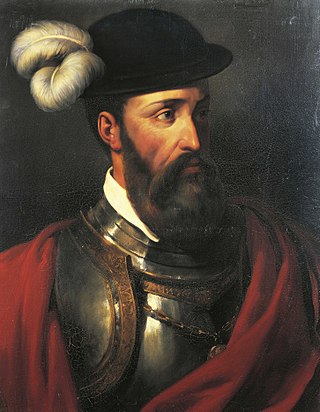 4
Francisco Pizarro, Marquess of the Atabillos was a Spanish conquistador, best known for his expeditions that led to the Spanish conquest of the Inca Empire.
4
Francisco Pizarro, Marquess of the Atabillos was a Spanish conquistador, best known for his expeditions that led to the Spanish conquest of the Inca Empire.
Rubén Darío
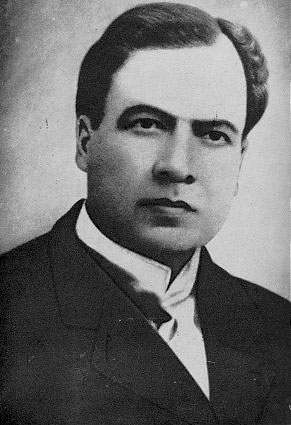 4
Félix Rubén García Sarmiento, known as Rubén Darío, was a Nicaraguan poet who initiated the Spanish-language literary movement known as modernismo (modernism) that flourished at the end of the 19th...
4
Félix Rubén García Sarmiento, known as Rubén Darío, was a Nicaraguan poet who initiated the Spanish-language literary movement known as modernismo (modernism) that flourished at the end of the 19th...
Enrique Molina (actor)
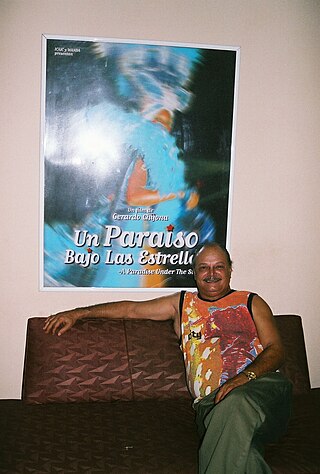 4
Enrique Molina was a Cuban film and television actor.
4
Enrique Molina was a Cuban film and television actor.
Claudio Arrau
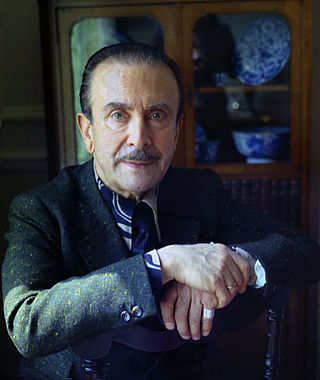 4
Claudio Arrau León was a Chilean pianist known for his interpretations of a vast repertoire spanning the baroque to 20th-century composers, especially Bach, Mozart, Beethoven, Schubert, Chopin,...
4
Claudio Arrau León was a Chilean pianist known for his interpretations of a vast repertoire spanning the baroque to 20th-century composers, especially Bach, Mozart, Beethoven, Schubert, Chopin,...
Gaspar Marín
 4
José Gaspar Marín Esquivel fue un abogado y político chileno. Tuvo importante participación en la Primera Junta de Gobierno y en la naciente vida política del país; se desempeñó como diputado y...
4
José Gaspar Marín Esquivel fue un abogado y político chileno. Tuvo importante participación en la Primera Junta de Gobierno y en la naciente vida política del país; se desempeñó como diputado y...
Marta Brunet
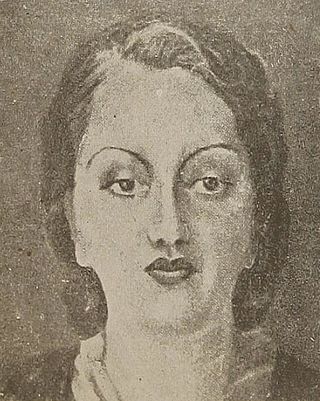 4
Marta Brunet, was a Chilean writer. She was a recipient of the National Prize for Literature.
4
Marta Brunet, was a Chilean writer. She was a recipient of the National Prize for Literature.
Dante Alighieri
 4
Dante Alighieri, most likely baptized Durante di Alighiero degli Alighieri and often referred to as Dante, was an Italian poet, writer, and philosopher. His Divine Comedy, originally called Comedìa...
4
Dante Alighieri, most likely baptized Durante di Alighiero degli Alighieri and often referred to as Dante, was an Italian poet, writer, and philosopher. His Divine Comedy, originally called Comedìa...
María Luisa Bombal
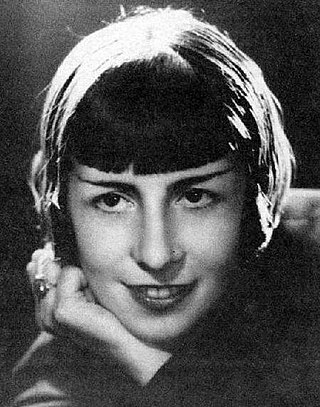 4
María Luisa Bombal Anthes was a Chilean novelist and poet. Her work incorporates erotic, surrealist, and feminist themes. She was a recipient of the Santiago Municipal Literature Award.
4
María Luisa Bombal Anthes was a Chilean novelist and poet. Her work incorporates erotic, surrealist, and feminist themes. She was a recipient of the Santiago Municipal Literature Award.
Joachim
 4
Joachim was, according to Christianity, the husband of Saint Anne, the father of Mary, mother of Jesus, and the maternal grandfather of Jesus.
4
Joachim was, according to Christianity, the husband of Saint Anne, the father of Mary, mother of Jesus, and the maternal grandfather of Jesus.
Saint Cecilia
 4
Saint Cecilia, also spelled Cecelia, was a Roman virgin martyr and is venerated in Catholic, Orthodox, Anglican, and some Lutheran churches, such as the Church of Sweden. She became the patroness of...
4
Saint Cecilia, also spelled Cecelia, was a Roman virgin martyr and is venerated in Catholic, Orthodox, Anglican, and some Lutheran churches, such as the Church of Sweden. She became the patroness of...
Isidora Goyenechea
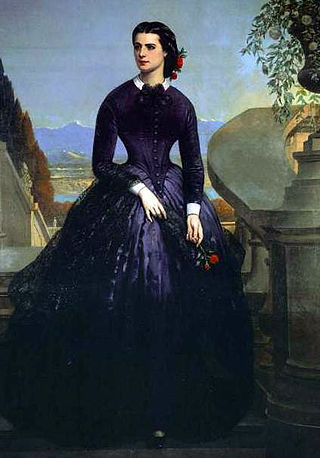 3
Isidora Goyenechea Gallo (1836-1897) was a Chilean industrialist. She owned and managed the coal mines in Lota and Coronel, the silver mines of Chañarcillo, the vineyard Viña Cousiño Macul and had...
3
Isidora Goyenechea Gallo (1836-1897) was a Chilean industrialist. She owned and managed the coal mines in Lota and Coronel, the silver mines of Chañarcillo, the vineyard Viña Cousiño Macul and had...
Isabella I of Castile
 3
Isabella I, also called Isabella the Catholic, was Queen of Castile and León from 1474 until her death in 1504. She was also Queen of Aragon from 1479 until her death as the wife of King Ferdinand...
3
Isabella I, also called Isabella the Catholic, was Queen of Castile and León from 1474 until her death in 1504. She was also Queen of Aragon from 1479 until her death as the wife of King Ferdinand...
Eliodoro Yáñez
 3
Eliodoro Yáñez Ponce de León was a Chilean journalist, lawyer, and politician, and was one of the founders of La Nación newspaper. He also served several times as minister and as President of the...
3
Eliodoro Yáñez Ponce de León was a Chilean journalist, lawyer, and politician, and was one of the founders of La Nación newspaper. He also served several times as minister and as President of the...
Ricardo Lyon
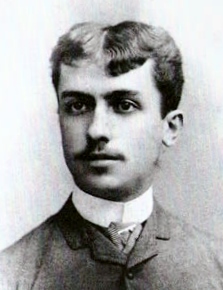 3
Ricardo Lyon Pérez fue un comerciante, agricultor y político conservador
chileno.
3
Ricardo Lyon Pérez fue un comerciante, agricultor y político conservador
chileno.
Beatriz (mártir)
 3
Beatriz de Roma, conocida como Santa Beatriz, fue una mártir cristiana. Su fiesta se celebra el 29 de julio.
3
Beatriz de Roma, conocida como Santa Beatriz, fue una mártir cristiana. Su fiesta se celebra el 29 de julio.
Hernando de Aguirre
 3
Hernando de Aguirre fue Corregidor de La Serena y teniente de gobernador del Tucumán.
3
Hernando de Aguirre fue Corregidor de La Serena y teniente de gobernador del Tucumán.
Alberto del Canto
 3
Alberto del Canto, formally Alberto Vieira do Canto, was a noble and military Portuguese conquistador who explored the north of Mexico, where he was the founder of several cities.
3
Alberto del Canto, formally Alberto Vieira do Canto, was a noble and military Portuguese conquistador who explored the north of Mexico, where he was the founder of several cities.
Enrique de Ossó i Cervelló
 3
Enrique de Ossó i Cervelló was a Spanish Catholic priest and the founder of the Society of Saint Teresa of Jesus. He served the role of a parish priest as an educator and an able catechist and...
3
Enrique de Ossó i Cervelló was a Spanish Catholic priest and the founder of the Society of Saint Teresa of Jesus. He served the role of a parish priest as an educator and an able catechist and...
José Toribio Medina
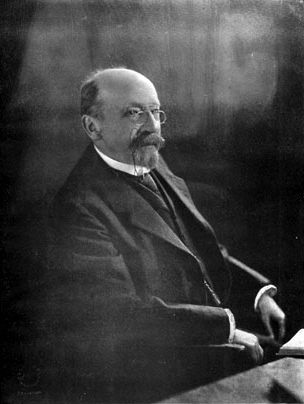 3
José Toribio Medina Zavala was a Chilean bibliographer, prolific writer, and historian. He is renowned for his study of colonial literature in Chile, printing in Spanish America and large...
3
José Toribio Medina Zavala was a Chilean bibliographer, prolific writer, and historian. He is renowned for his study of colonial literature in Chile, printing in Spanish America and large...
Leonardo da Vinci
 3
Leonardo di ser Piero da Vinci was an Italian polymath of the High Renaissance who was active as a painter, draughtsman, engineer, scientist, theorist, sculptor, and architect. While his fame...
3
Leonardo di ser Piero da Vinci was an Italian polymath of the High Renaissance who was active as a painter, draughtsman, engineer, scientist, theorist, sculptor, and architect. While his fame...
José Arrieta
 3
José Casimiro Arrieta Perera fue un diplomático y empresario uruguayo avecindado en Chile.
3
José Casimiro Arrieta Perera fue un diplomático y empresario uruguayo avecindado en Chile.
Abraham Lincoln
 3
Abraham Lincoln was an American lawyer, politician, and statesman, who served as the 16th president of the United States, from 1861 until his assassination in 1865. Lincoln led the United States...
3
Abraham Lincoln was an American lawyer, politician, and statesman, who served as the 16th president of the United States, from 1861 until his assassination in 1865. Lincoln led the United States...
Juan Sebastián Elcano
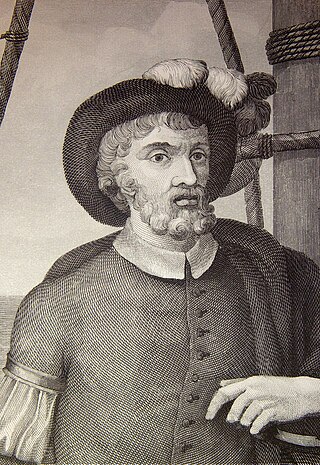 3
Juan Sebastián Elcano was a Spanish navigator, ship-owner and explorer of Basque origin from Getaria, part of the Crown of Castile when he was born, best known for having completed the first...
3
Juan Sebastián Elcano was a Spanish navigator, ship-owner and explorer of Basque origin from Getaria, part of the Crown of Castile when he was born, best known for having completed the first...
Max Jara
 3
Maximiliano Jara Troncoso, better known as Max Jara, was a Chilean poet. He won the Chilean National Prize for Literature in 1956.
3
Maximiliano Jara Troncoso, better known as Max Jara, was a Chilean poet. He won the Chilean National Prize for Literature in 1956.
Albert Einstein
 3
Albert Einstein was a German-born theoretical physicist who is widely held to be one of the greatest and most influential scientists of all time. Best known for developing the theory of relativity,...
3
Albert Einstein was a German-born theoretical physicist who is widely held to be one of the greatest and most influential scientists of all time. Best known for developing the theory of relativity,...
Eliecer Parada
 3
Eliecer Parada Pacheco fue un militar y político chileno.
3
Eliecer Parada Pacheco fue un militar y político chileno.
Gabriel García Moreno
 3
Gabriel Gregorio Fernando José María García Moreno y Morán de Butrón, was an Ecuadorian politician and aristocrat who twice served as President of Ecuador and was assassinated during his second term...
3
Gabriel Gregorio Fernando José María García Moreno y Morán de Butrón, was an Ecuadorian politician and aristocrat who twice served as President of Ecuador and was assassinated during his second term...
Alice of Schaerbeek
 3
Alice of Schaerbeek, was a Cistercian laysister who is venerated as the patron saint of the blind and paralyzed. Her feast day is 15 June.
3
Alice of Schaerbeek, was a Cistercian laysister who is venerated as the patron saint of the blind and paralyzed. Her feast day is 15 June.
Antonio Machado
 3
Antonio Cipriano José María y Francisco de Santa Ana Machado y Ruiz, known as Antonio Machado, was a Spanish poet and one of the leading figures of the Spanish literary movement known as the...
3
Antonio Cipriano José María y Francisco de Santa Ana Machado y Ruiz, known as Antonio Machado, was a Spanish poet and one of the leading figures of the Spanish literary movement known as the...
Roberto Bravo
 3
Roberto Bravo is a Mexican novelist and a short story writer.
3
Roberto Bravo is a Mexican novelist and a short story writer.
Humberto Fuenzalida
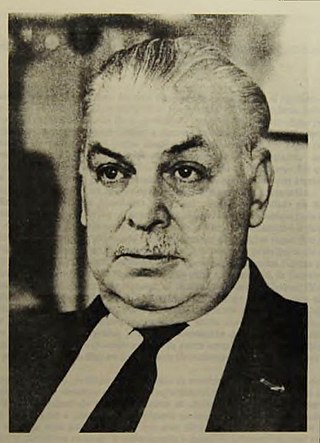 3
Humberto Fuenzalida Villegas (1904–1966) was a Chilean geologist, paleontologist and geographer. Fuenzalida headed in turn the geography and geology departments of the University of Chile, being also...
3
Humberto Fuenzalida Villegas (1904–1966) was a Chilean geologist, paleontologist and geographer. Fuenzalida headed in turn the geography and geology departments of the University of Chile, being also...
Anfión Muñoz
 3
Anfión Muñoz Muñoz was a Chilean political figure, who was the country's minister of industry and public works in 1904.
3
Anfión Muñoz Muñoz was a Chilean political figure, who was the country's minister of industry and public works in 1904.
Isidore the Laborer
 3
Isidore the Laborer, also known as Isidore the Farmer, was a Spanish farmworker known for his piety toward the poor and animals. He is the Catholic patron saint of farmers, and of Madrid; El...
3
Isidore the Laborer, also known as Isidore the Farmer, was a Spanish farmworker known for his piety toward the poor and animals. He is the Catholic patron saint of farmers, and of Madrid; El...
George Washington
 3
George Washington was an American Founding Father, military officer, and politician who served as the first president of the United States from 1789 to 1797. Appointed by the Second Continental...
3
George Washington was an American Founding Father, military officer, and politician who served as the first president of the United States from 1789 to 1797. Appointed by the Second Continental...
Huáscar
 3
Huáscar Inca also Guazcar was Sapa Inca of the Inca Empire from 1527 to 1532. He succeeded his father, Huayna Capac and his brother Ninan Cuyochi, both of whom died of smallpox while campaigning near...
3
Huáscar Inca also Guazcar was Sapa Inca of the Inca Empire from 1527 to 1532. He succeeded his father, Huayna Capac and his brother Ninan Cuyochi, both of whom died of smallpox while campaigning near...
Ezequiel Fernández (Panamanian politician)
 3
Ezequiel Fernández Jaén was one of Panama's presidential designates from 1936 to 1940 and in that capacity also acting President of Panama from December 16, 1939, to December 18, 1939. He belonged to...
3
Ezequiel Fernández Jaén was one of Panama's presidential designates from 1936 to 1940 and in that capacity also acting President of Panama from December 16, 1939, to December 18, 1939. He belonged to...
Teresa of the Andes
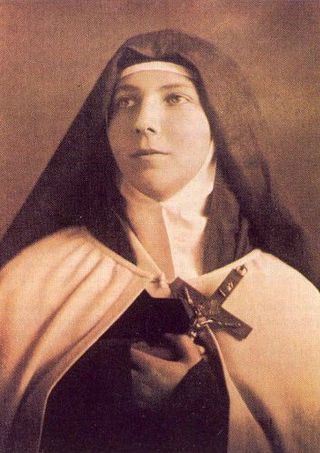 3
Teresa of Jesus of Los Andes, born as Juana Enriqueta Josephina de Los Sagrados Corazones Fernández Solar, was a Chilean nun of the Discalced Carmelites. Fernández Solar was a pious child but had an...
3
Teresa of Jesus of Los Andes, born as Juana Enriqueta Josephina de Los Sagrados Corazones Fernández Solar, was a Chilean nun of the Discalced Carmelites. Fernández Solar was a pious child but had an...
Rosita Renard
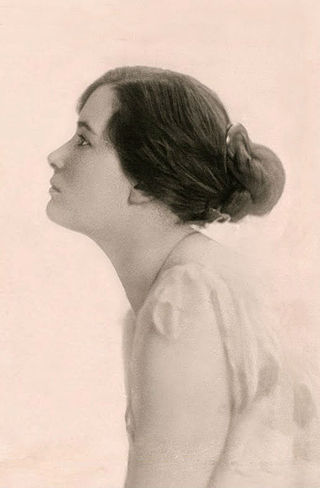 3
Rosita Renard was a Chilean classical pianist.
3
Rosita Renard was a Chilean classical pianist.
Gustavo Le Paige
 3
Gustavo Le Paige de Walque fue un sacerdote jesuita y destacado investigador de la cultura atacameña, a cuyo estudio profundo dedicó 25 años de su vida.
3
Gustavo Le Paige de Walque fue un sacerdote jesuita y destacado investigador de la cultura atacameña, a cuyo estudio profundo dedicó 25 años de su vida.
Atahualpa
 3
Atahualpa, also Atawallpa (Quechua), Atabalica, Atahuallpa, Atabalipa, was the last effective Inca emperor before his capture and execution during the Spanish conquest.
3
Atahualpa, also Atawallpa (Quechua), Atabalica, Atahuallpa, Atabalipa, was the last effective Inca emperor before his capture and execution during the Spanish conquest.
Alfred Nobel
 3
Alfred Bernhard Nobel was a Swedish chemist, inventor, engineer and businessman. He is known for inventing dynamite as well as having bequeathed his fortune to establish the Nobel Prize. He also made...
3
Alfred Bernhard Nobel was a Swedish chemist, inventor, engineer and businessman. He is known for inventing dynamite as well as having bequeathed his fortune to establish the Nobel Prize. He also made...
Ricardo Cumming
 3
Ricardo Cumming Dunn fue un comerciante chileno, conocido por su activo rol como partidario del Congreso durante la Guerra Civil de 1891, participando en un fallido ataque a las fuerzas navales del...
3
Ricardo Cumming Dunn fue un comerciante chileno, conocido por su activo rol como partidario del Congreso durante la Guerra Civil de 1891, participando en un fallido ataque a las fuerzas navales del...
Not found.
 3
3
Gerardo dei Tintori
 3
Saint Gerardo dei Tintori or Tintore is a saint of the Catholic Church, joint patron saint of Monza in Italy, where he is particularly noted as the founder of a hospital.
3
Saint Gerardo dei Tintori or Tintore is a saint of the Catholic Church, joint patron saint of Monza in Italy, where he is particularly noted as the founder of a hospital.
Pedro de Villagra
 3
Pedro de Villagra y Martínez was a Spanish soldier who participated in the conquest of Chile, being appointed its Royal Governor between 1563 and 1565.
3
Pedro de Villagra y Martínez was a Spanish soldier who participated in the conquest of Chile, being appointed its Royal Governor between 1563 and 1565.
Francisco Encina
 3
José Francisco Encina Moriamez is a Chilean politician who served as President of the Chamber of Deputies and as a member of the Chamber of Deputies, representing District 8 of the Coquimbo Region.
3
José Francisco Encina Moriamez is a Chilean politician who served as President of the Chamber of Deputies and as a member of the Chamber of Deputies, representing District 8 of the Coquimbo Region.
Horacio Aránguiz Donoso
 3
Horacio Aránguiz Donoso fue un historiador chileno, que llegó a ocupar diversos cargos bajo la dictadura de Augusto Pinochet.
3
Horacio Aránguiz Donoso fue un historiador chileno, que llegó a ocupar diversos cargos bajo la dictadura de Augusto Pinochet.
Vicente de Paúl
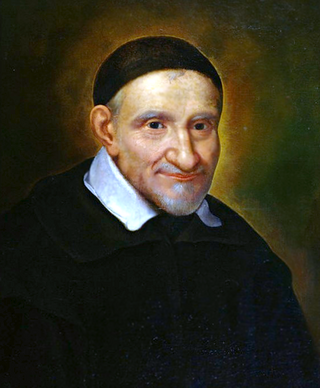 3
San Vicente de Paúl fue un sacerdote francés.
3
San Vicente de Paúl fue un sacerdote francés.
Manuel de Salas
Eugenius II of Toledo
 3
Saint Eugenius II, sometimes called Eugenius the Younger as the successor of Eugenius I, was Archbishop of Toledo from 647 until his death.
3
Saint Eugenius II, sometimes called Eugenius the Younger as the successor of Eugenius I, was Archbishop of Toledo from 647 until his death.
Salvador Sanfuentes
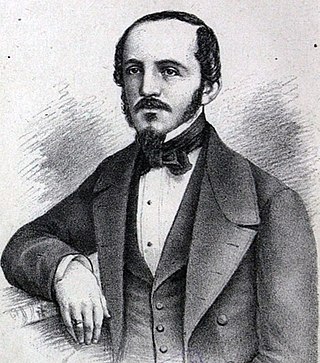 3
Salvador Sanfuentes was a Chilean lawyer, politician and poet. He served as Minister of Justice and Public Worship twice, and was elected as MP for the Association of Vallenar.
3
Salvador Sanfuentes was a Chilean lawyer, politician and poet. He served as Minister of Justice and Public Worship twice, and was elected as MP for the Association of Vallenar.
José Antonio Bustamante Donoso
 3
José Antonio Bustamante Donoso fue un general y diputado chileno.
3
José Antonio Bustamante Donoso fue un general y diputado chileno.
Carlos Pezoa Véliz
 3
Carlos Pezoa Véliz was a poet, educator and journalist from Chile. His literary work remained largely unpublished until his death at the age of 28. He was posthumously recognized as a major figure in...
3
Carlos Pezoa Véliz was a poet, educator and journalist from Chile. His literary work remained largely unpublished until his death at the age of 28. He was posthumously recognized as a major figure in...
Rebeca Matte Bello
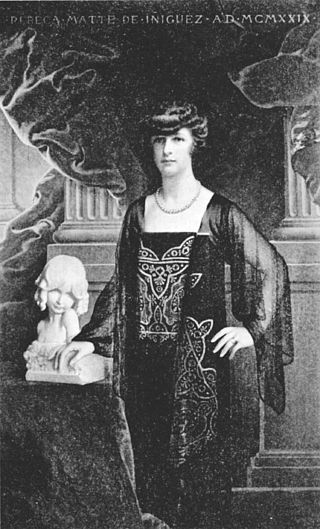 3
Rebeca Matte Bello was a Chilean sculptor. Her sculptures are in the collection of the Chilean National Museum of Fine Arts, including her sculpture Icarus and Daedalus, which resides outside the...
3
Rebeca Matte Bello was a Chilean sculptor. Her sculptures are in the collection of the Chilean National Museum of Fine Arts, including her sculpture Icarus and Daedalus, which resides outside the...
Wenceslao Vargas
 3
Wenceslao Vargas Rojas fue un marino y militar chileno, reconocido como el último sobreviviente de la tripulación de la corbeta Esmeralda que tomó parte en el combate naval de Iquique el 21 de mayo...
3
Wenceslao Vargas Rojas fue un marino y militar chileno, reconocido como el último sobreviviente de la tripulación de la corbeta Esmeralda que tomó parte en el combate naval de Iquique el 21 de mayo...
Marcellin Champagnat
 3
Marcellin Joseph Benedict Champagnat, FMS was a French Catholic religious born in Le Rosey, village of Marlhes, near St. Etienne (Loire), France. He was the founder of the Marist Brothers, a...
3
Marcellin Joseph Benedict Champagnat, FMS was a French Catholic religious born in Le Rosey, village of Marlhes, near St. Etienne (Loire), France. He was the founder of the Marist Brothers, a...
Jean Mermoz
 3
Jean Mermoz was a French aviator, viewed as a hero by other pilots such as Saint-Exupéry, and in his native France, where many schools bear his name. In Brazil, he also is recognized as a pioneer...
3
Jean Mermoz was a French aviator, viewed as a hero by other pilots such as Saint-Exupéry, and in his native France, where many schools bear his name. In Brazil, he also is recognized as a pioneer...
Arturo Godoy
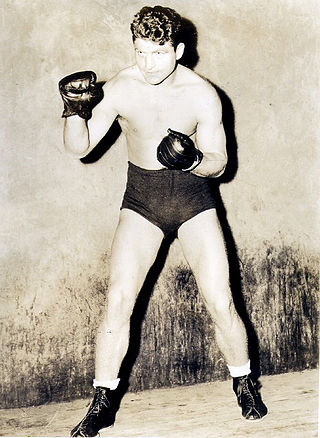 3
Arturo Godoy was a Chilean professional boxer, also nicknamed "Arturito".
3
Arturo Godoy was a Chilean professional boxer, also nicknamed "Arturito".
Armando Jaramillo Lyon
 3
Armando José Domingo Jaramillo Lyon was a Chilean politician who served as a member of the Senate of Chile. Similarly, he served as a member of the Chamber of Deputies of Chile.
3
Armando José Domingo Jaramillo Lyon was a Chilean politician who served as a member of the Senate of Chile. Similarly, he served as a member of the Chamber of Deputies of Chile.
Alberto Blest Gana
 3
Alberto Blest Gana was a Chilean novelist and diplomat, considered the father of Chilean novel. Blest Gana was of Irish and Basque descent.
3
Alberto Blest Gana was a Chilean novelist and diplomat, considered the father of Chilean novel. Blest Gana was of Irish and Basque descent.
Juan Esteban Montero
 3
Juan Esteban Montero Rodríguez was a Chilean political figure. He served twice as president of Chile between 1931 and 1932.
3
Juan Esteban Montero Rodríguez was a Chilean political figure. He served twice as president of Chile between 1931 and 1932.
Eloísa Díaz
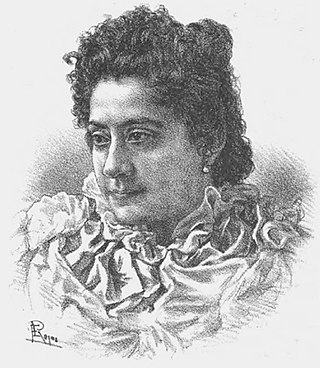 3
Eloísa Díaz Inzunza was a Chilean medical doctor. She was the first female medical student to attend the University of Chile, and the first woman to become a doctor of medicine in South America.
3
Eloísa Díaz Inzunza was a Chilean medical doctor. She was the first female medical student to attend the University of Chile, and the first woman to become a doctor of medicine in South America.
Jesus
 3
Jesus, also referred to as Jesus Christ, Jesus of Nazareth, and many other names and titles, was a first-century Jewish preacher and religious leader. He is the central figure of Christianity, the...
3
Jesus, also referred to as Jesus Christ, Jesus of Nazareth, and many other names and titles, was a first-century Jewish preacher and religious leader. He is the central figure of Christianity, the...
Saint Stephen
 3
Stephen is traditionally venerated as the protomartyr or first martyr of Christianity. According to the Acts of the Apostles, he was a deacon in the early church at Jerusalem who angered members of...
3
Stephen is traditionally venerated as the protomartyr or first martyr of Christianity. According to the Acts of the Apostles, he was a deacon in the early church at Jerusalem who angered members of...
Hernán Cortés
 3
Hernán Cortés de Monroy y Pizarro Altamirano, 1st Marquess of the Valley of Oaxaca was a Spanish conquistador who led an expedition that caused the fall of the Aztec Empire and brought large portions...
3
Hernán Cortés de Monroy y Pizarro Altamirano, 1st Marquess of the Valley of Oaxaca was a Spanish conquistador who led an expedition that caused the fall of the Aztec Empire and brought large portions...
Pedro Gonzalez Gonzalez
 3
Pedro Gonzalez Gonzalez was an American character actor best known for his appearances in a number of John Wayne movies.
3
Pedro Gonzalez Gonzalez was an American character actor best known for his appearances in a number of John Wayne movies.
James the Great
 3
James the Great was one of the Twelve Apostles of Jesus. According to the New Testament, he was the second of the apostles to die, and the first to be martyred. Saint James is the patron saint of...
3
James the Great was one of the Twelve Apostles of Jesus. According to the New Testament, he was the second of the apostles to die, and the first to be martyred. Saint James is the patron saint of...
Carlos Dittborn
 3
Carlos Dittborn Pinto (1924–1962) was a Chilean football administrator. In his lifetime, he served as president of Universidad Católica and of CONMEBOL and was the head of the organizing committee of...
3
Carlos Dittborn Pinto (1924–1962) was a Chilean football administrator. In his lifetime, he served as president of Universidad Católica and of CONMEBOL and was the head of the organizing committee of...
Mariano Latorre
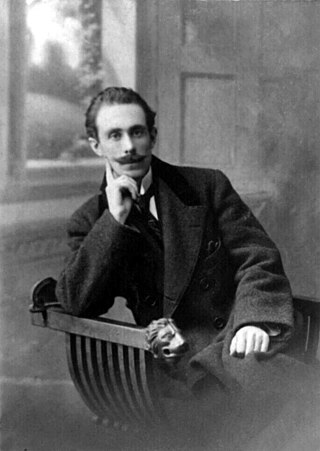 3
Mariano Lautaro Latorre Court was a Chilean writer of Basque descent. He won the Chilean National Prize for Literature in 1944.
3
Mariano Lautaro Latorre Court was a Chilean writer of Basque descent. He won the Chilean National Prize for Literature in 1944.
Benjamín Subercaseaux
 3
Benjamín Subercaseaux Zañartu (1902–1973) was a Chilean writer and researcher. He won the Chilean National Prize for Literature in 1963.
3
Benjamín Subercaseaux Zañartu (1902–1973) was a Chilean writer and researcher. He won the Chilean National Prize for Literature in 1963.
Nicanor Parra
 3
Nicanor Segundo Parra Sandoval was a Chilean poet and physicist. He was considered one of the most influential Chilean poets of the Spanish language in the 20th century, often compared with Pablo...
3
Nicanor Segundo Parra Sandoval was a Chilean poet and physicist. He was considered one of the most influential Chilean poets of the Spanish language in the 20th century, often compared with Pablo...
Alonso de Monroy
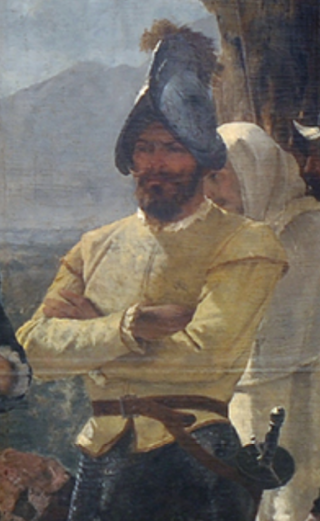 3
Alonso de Monroy fue un conquistador español, teniente general de Pedro de Valdivia, presidente del cabildo de Santiago de Nueva Extremadura, encomendero y emisario de Valdivia en el Virreinato del...
3
Alonso de Monroy fue un conquistador español, teniente general de Pedro de Valdivia, presidente del cabildo de Santiago de Nueva Extremadura, encomendero y emisario de Valdivia en el Virreinato del...
Thérèse of Lisieux
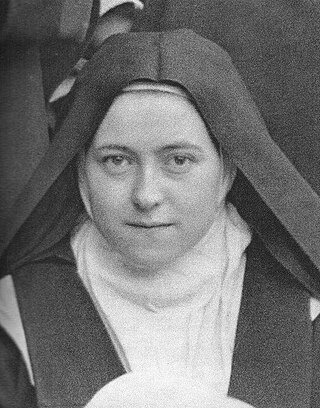 3
Therese of Lisieux, also known as Saint Therese of the Child Jesus and the Holy Face, was a French Discalced Carmelite who is widely venerated in modern times. She is popularly known in English as...
3
Therese of Lisieux, also known as Saint Therese of the Child Jesus and the Holy Face, was a French Discalced Carmelite who is widely venerated in modern times. She is popularly known in English as...
Gladys Marín
 3
Gladys del Carmen Marín Millie was a Chilean activist and political figure. She was Secretary-General of the Communist Party of Chile (PCCh) (1994–2002) and then president of the PCCh until her...
3
Gladys del Carmen Marín Millie was a Chilean activist and political figure. She was Secretary-General of the Communist Party of Chile (PCCh) (1994–2002) and then president of the PCCh until her...
Alberto Cruz Montt
 3
Alberto Cruz Montt, was a Chilean architect and professor who was an exponent of the Neoclassical style.
3
Alberto Cruz Montt, was a Chilean architect and professor who was an exponent of the Neoclassical style.
Josemaría Escrivá
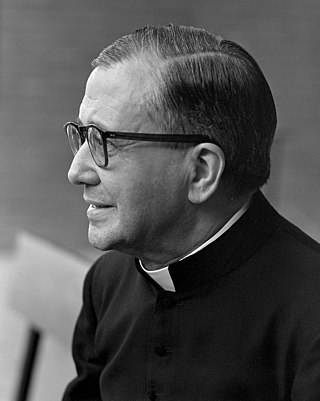 3
Saint Josemaría Escrivá de Balaguer y Albás was a Spanish Roman Catholic priest. He founded Opus Dei, an organization of laypeople and priests dedicated to the teaching that everyone is called to...
3
Saint Josemaría Escrivá de Balaguer y Albás was a Spanish Roman Catholic priest. He founded Opus Dei, an organization of laypeople and priests dedicated to the teaching that everyone is called to...